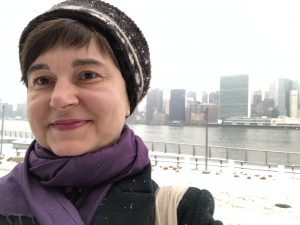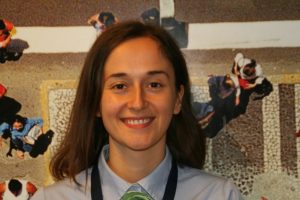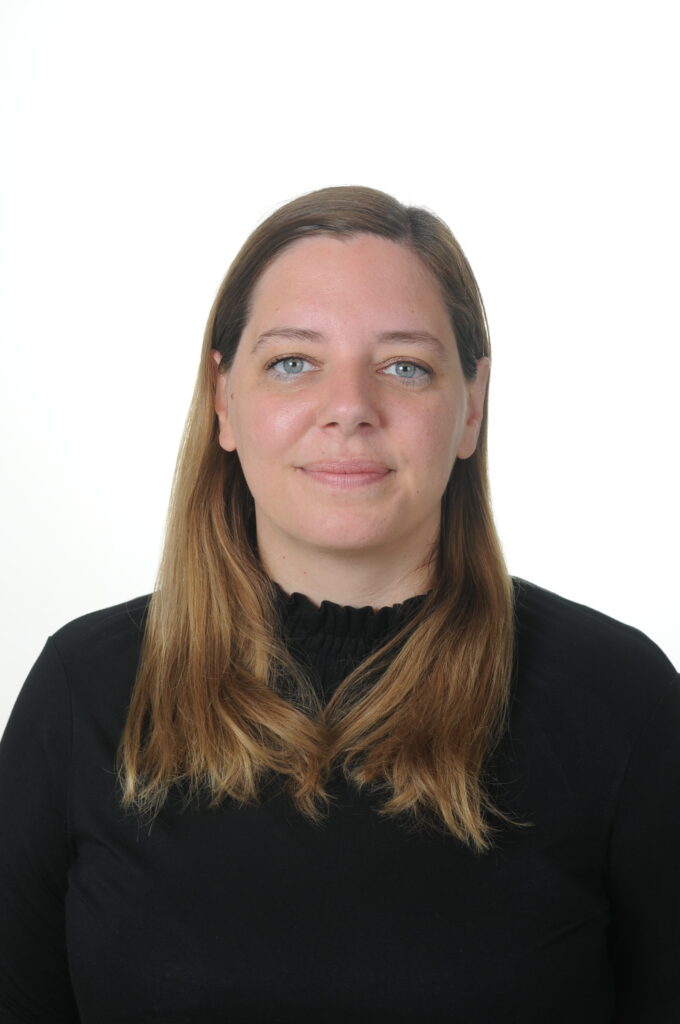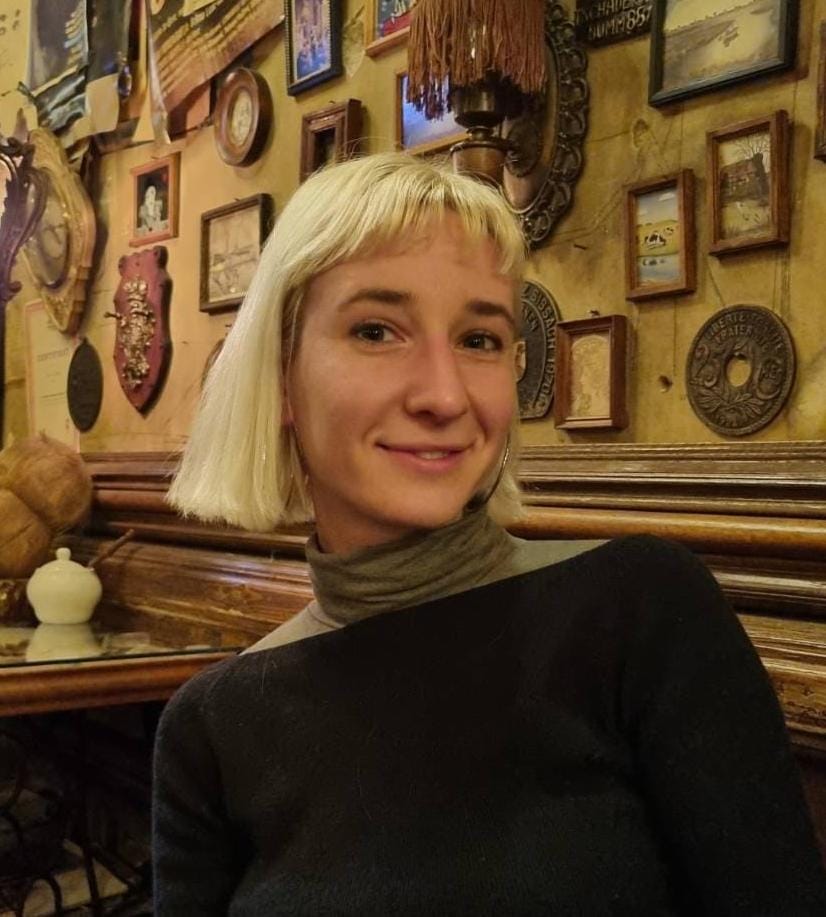
Aida Kapetanović is a recent doctoral graduate at the faculty of political science and sociology of the Scuola Normale Superiore. Her research interests combine environmental sociology, social movement studies, cultural and symbolic dimensions of collective action, nationalism, identity, and qualitative research methodologies. Her main area of interest is Southeast Europe. She is an activist in Florence, where she has been involved in various grassroots organisations.
The growing political pressure for decarbonization in the Balkans has driven a surge in hydropower projects, posing significant threats to local communities and riverine ecosystems. In response, grassroots initiatives for river protection have emerged across the region. This research focuses on the regional network “Let’s Defend the Balkan Rivers” to examine the role of local environmental struggles in shaping an ecological transition from a bottom-up perspective. It explores the evolution of regional coordination, the diffusion of frames, and the role of regional networking in supporting claim-making across different scales. The study employs frame analysis of the network’s documents and semi-structured interviews with key activists, building on prior research on river protection movements in Bosnia and Herzegovina and Serbia.
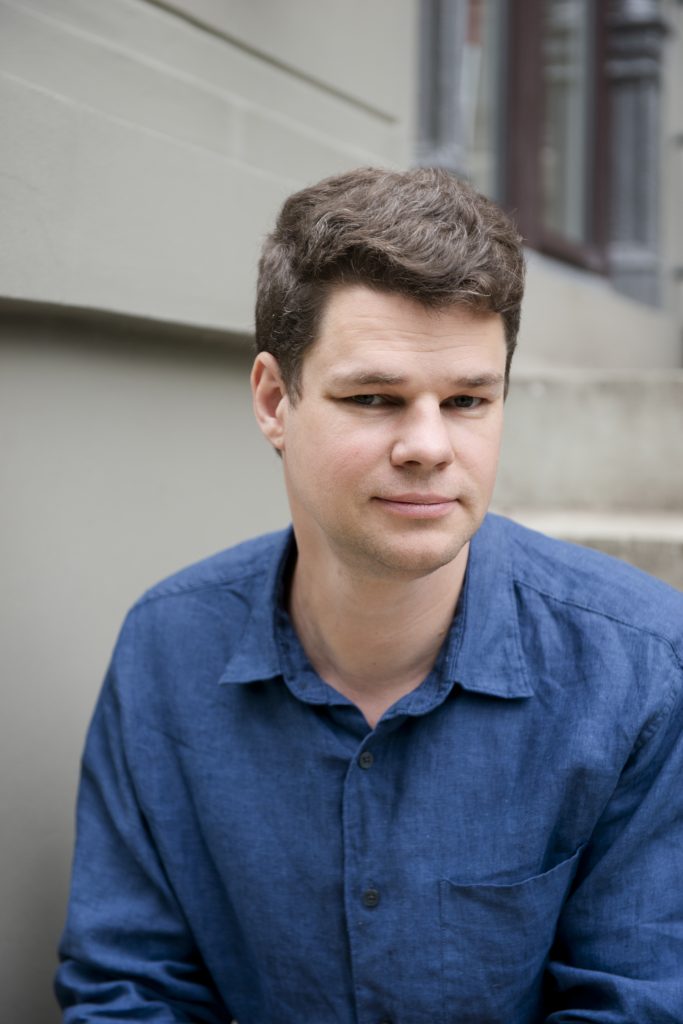
Arseniy Kumankov specializes in war studies, ethics of war and peace, political and social theory. He has been a research scholar in politics at Princeton University since 2022. In 2024, he taught courses on Russian politics and political theory at UMass Amherst. Arseniy received his Ph.D. in philosophy from HSE University (Moscow) in 2014. Between 2013 and 2022, he taught at the Moscow School of Social and Economic Sciences (Shaninka) and at HSE University, where he was deputy dean for research at the Faculty of Humanities and associate professor. Arseniy has authored numerous articles in Russian and English, as well as three books in Russian, and is the editor of the book series of the New Literary Observer (NLO) publishing house. Arseniy is a member of EuroISME, Concerned Philosophers for Peace, and the Independent Institute of Philosophy.
The 21st century has transformed traditional notions of citizenship, reshaping how individuals relate to their states, societies, and the global community. Moreover, while the scholarship on citizens’ political responsibilities in developed democratic states is extensive, much less attention has been paid to the role of citizens in countries facing democratic backsliding or non-democratic regimes, especially concerning their political obligations and accountability for their governments’ wrongdoings. My project proposes to explore the evolving meaning of citizenship and the corresponding responsibilities of citizens in a world increasingly defined by a wide range of challenges, three of which are listed as key thematic foci (economic, environmental, and digital issues).
The primary aim of this project is to address two central sets of problems: First, what are the essential characteristics of citizenship in the modern world? And second, what are the political responsibilities of citizens in non-democratic states, particularly in the context of their state’s wrongdoings?

Eleni Oikonomaki is an architect, urban designer, and researcher specializing in smart city planning and innovation ecosystems. She leverages programming languages to collect, measure, and interpret data for diverse design initiatives, including environmental assessments and urban planning. Her expertise spans urban design, spatial analysis, geocoding, and basic cartography, supporting research efforts in areas such as the twin transition (green and digital), technological innovation, and demographic trends. Additionally, she has executed research projects involving econometrics and feasibility studies, contributing valuable insights to the field.
Her research project evaluates the dynamics of innovation districts using big data and geospatial analytics to detect innovation patterns and develop a framework for innovation assessment. Case studies in the US and EU contexts analyze indicators of past development trajectories to understand territorial impacts on “innovation-building processes.” By addressing four key research questions, the study aims to devise practical urban development frameworks for planners and policymakers to foster innovation in low-income and low-growth regions, creating more sustainable, resilient, and equitable urban environments aligned with the twin transition—green and digital. This research aligns with the fellowship’s focus, offering evidence-based insights and a roadmap for managing innovation districts, particularly in Southeast Europe amidst technological advancements and environmental challenges.
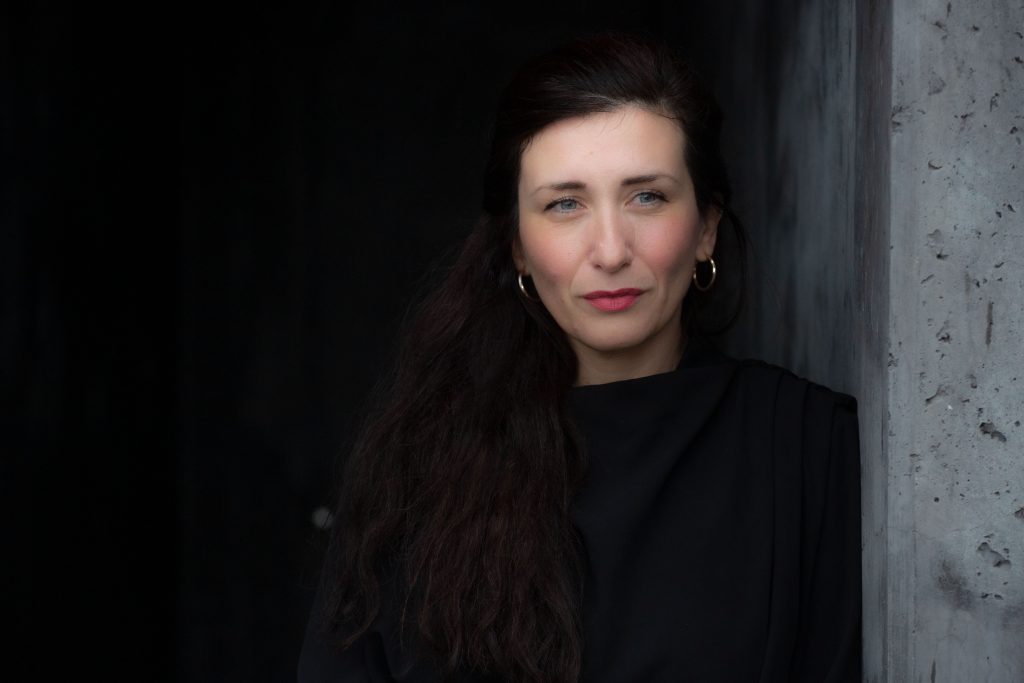
Emina Bužinkić (PhD) is a researcher, activist, and writer working at the intersections of migration, transnational solidarities, education, and feminist praxis. Her work challenges the rigidity of migration and border regimes, xeno-racism, ethno-nationalism, occupations, and colonial structures. Emina employs critical qualitative methodologies, including narrative inquiry, storytelling, feminist ethnographies, and critical discourse analysis, collaborating with and advocating for racialized and marginalized communities.She explores pathways to epistemic justice through community-accountable research and agitation. Actively reimagining and practicing migration justice, Emina contributes to organizing social movements and people’s tribunals. She is a member of the editorial collective for AGITATE! – Unsettling Knowledges and serves on the program committee of the Grounded Festival. Her publications span international journals, covering critical migration and border studies, critical race studies, public anthropology, education justice, and transnational feminism.Emina earned her doctorate in critical educational, cultural, feminist, and human rights studies from the University of Minnesota, USA. She is currently concluding her postdoctoral research at the Institute for Development and International Relations, with the project ENDURE – Inequalities, Community Resilience and New Governance Modalities in a Post-pandemic World, funded by the Croatian Science Foundation.
My research, Migrant Work(ers) COUNTER Economies in Croatia, maps the collective organizing of migrant workers and its socio-political impacts amid growing insecurity and precarity in the peripheries of the European Union. I focus on the conditions that enable and obstruct migrant workers’ collective responses to their racialized treatment as “surplus populations” (Mezzadra, 2022). This research positions migrant organizing as a crucial site for producing critical knowledge and driving socio-political transformation, resisting the extractive market logic of racial capitalism while emphasizing the labor agency of migrant workers.
I explore two key questions: 1) What critical junctures mobilize migrant workers into collective action? 2) How can we understand the epistemic and political positionality of migrant workers to foster strategic interventions for democratization and justice-based economies in the EU’s peripheries? To answer these questions, I will engage with migrant workers’ collectives and organizations, while mapping the policies and systems that regulate and exploit migrant labor—from immigration and work permits to working conditions, livelihoods, and unionization. In line with the fellowship call, I situate this research within a moment of converging crises: the rising number of migrant workers from former Yugoslav countries and the Global South into EU nations, and the deteriorating economic conditions threatening workers’ dignity and safety.
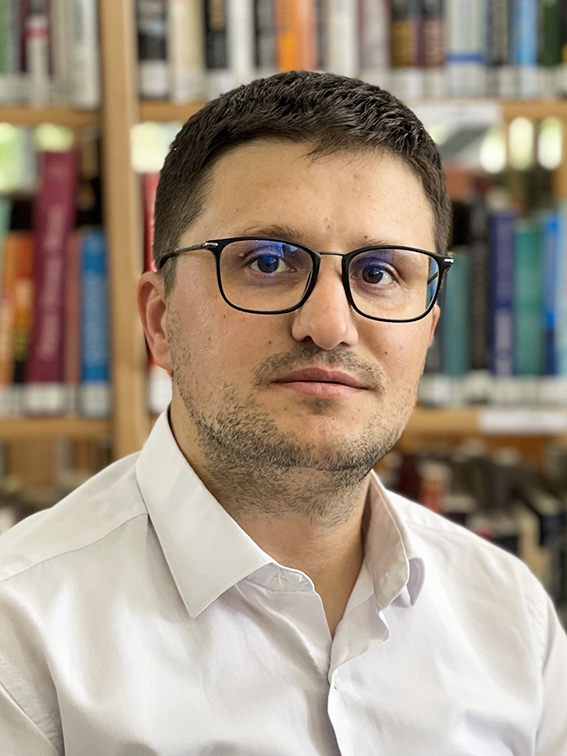
Gentjan Skara holds an LLB from the University of Tirana (Albania); an MA in “European Studies” from Epoka University (Albania); an LLM for “South-East European Law and European Integration” from the University of Graz; PhD in “EU Law and National Legal System program” from the University of Ferrara. Genti has been a visiting fellow at the Institute of Corporate and International Commercial Law, University of Graz (Austria), the Department of International Law, University of Ljubljana (Slovenia) and the Institute for European Global Studies, University of Basel (Switzerland). As of 1 August 2023, Genti is a full-time member of the Department of Law at Epoka University and teaches EU Law, EU Competition Law and Law and Technology courses. In May 2022, Genti published a book in a well-known publisher, Springer Nature, titled “Europeanization of Albanian Competition Law: The Case of Albania”. In addition, Genti’s scholarship has been published in peer-reviewed international journals. His research interests relate to EU Law, competition law, the harmonisation of laws, and the interplay between online platforms and law. Besides academic engagement, Genti is a National Legal expert for the “Internal Market and Competition” of EU acquis near the Ministry of European and Foreign Affairs, Republic of Albania and has provided its expertise to different organisations on issues related to harmonization of law, competition law and regulation of digital platforms.
Online platforms are indispensable to our daily activities as users. In addition, businesses are increasingly using online platforms in the business model. While the increase of online platforms boosts innovation and develops the economy, few online platforms act as gatekeepers by controlling a large digital market, likely leading to unfair practices and conditions for business users and end users. These gatekeepers have challenged the traditional enforcement of competition law in the digital markets. To address the behaviour of large online platforms in the internal market, on 24 March 2022, the EU adopted a regulation commonly known as the Digital Market Act. As the DMA became effective in 2023, pursuant to the Stabilisation and Association Agreement harmonisation clause, the WBc must transpose this regulation into their domestic legal system. Likewise, in the EU, the growth of digital platforms and e-commerce platforms has created new challenges for WBc National Competition Authorities in handling cases concerning online platforms. This research analyses the enforcement of competition rules in the digital market in Western Balkan countries and discusses the main challenges that the WBc national competition authorities face with online platforms. The primary methodology is that of doctrinal legal research and comparative legal research. The doctrinal legal research analyses the current WBc competition legislative act and the National Competition Authority case law. The comparative legal research compares whether and to what extent WBc competition law addresses the behaviour of online platforms. This research argues that the WBc national competition authorities lack the necessary human, financial, and technical resources to handle these kinds of cases.
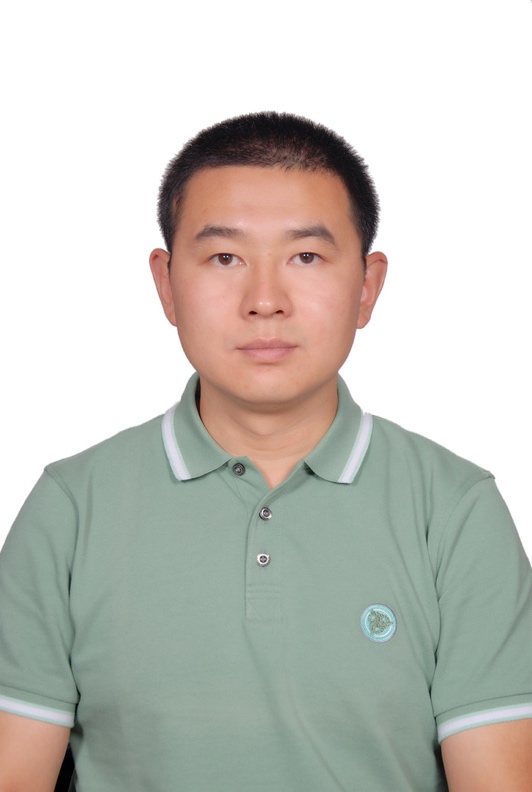
Haisheng Hu, received his Master of Public Administration from Nanyang Technological University and his Master of Science in International Business from the University of Birmingham. He specializes in international relations, political economy and geopolitical economy and sustainable development. He has published three books, more than 60 review articles in China People’s Daily, China Discipline Inspection and Supervision Newspaper, Study Times, etc., and more than 10 academic articles in international journals, including Asian Political Economy, China Political Review and China Economy.
The Western Balkans, a region characterized by political divisions, economic instability and environmental challenges, is at a critical juncture in its quest for integration into the broader European Union (EU) framework. At the same time, China’s Belt and Road Initiative (BRI) presents opportunities and challenges for sustainable development in the region. Using a combination of documentary and quantitative analyses, this study will assess the impact of the Belt and Road Initiative in terms of infrastructure investment, economic cooperation and policy coordination for the Western Balkans in terms of economic stability, digital transformation and environmental sustainability.

Dr. Jasna Jovićević (Serbia), research associate, is a transdisciplinary artist, composer, and artistic researcher whose work bridges music, science, and social engagement. As a saxophonist and composer, she has performed at major festivals across Europe, the USA, and Canada, with a discography of seven solo albums and numerous collaborations. Jasna’s practice integrates experimental music production with scholarly inquiry, focusing on jazz innovation, gender studies, and participatory social practices. Her work highlights the transformative potential of research-based artistic practices in addressing societal issues. Holding degrees in Jazz Saxophone Performance (Franz Liszt Music Academy, Budapest), Music Composition (York University, Toronto), and a PhD in Transdisciplinary Studies of Contemporary Arts and Media (Singidunum University, Be;grade), Jasna combines rigorous academic research with creative output. Internationally recognized for her contributions to artistic research, she has participated in prestigious projects like Ars Electronica, artist residencies in New York and San Francisco, and global collaborations. In 2023, she published the award-winning monograph Good Morning Jazzwomen (Orion Art Books), contributing to feminist musicology and cultural studies. Her recent work as an Adjunct Research Associate at Tshwane University of Technology, South Africa, reflects her commitment to socially engaged arts, where she developed a curriculum in participatory and community-based artistic practices. Jasna’s interdisciplinary approach connects artistic creation, academic research, and cultural activism.
This research investigates the migration of female jazz musicians from the Balkans to Western Europe, focusing on gender inequality, systemic barriers, and socio-cultural dynamics that compel their departure. Combining ethnographic methods, policy analysis, and artistic practice-based research, the project explores how patriarchal norms and male-coded jazz traditions exacerbate exclusion in the Balkans. Through collaborative duo compositions, sonic mapping, and autoethnographic storytelling, the study examines how migration and social reconfiguration shape these musicians’ identities, careers, and creative practices. Additionally, it identifies gaps in cultural policies and proposes strategies for fostering reintegration, challenging the brain drain phenomenon, and revitalizing the Balkan jazz scene. By bridging artistic and academic inquiry, this project contributes to gender equity, circular migration policy, and cultural sustainability in Southeast Europe.
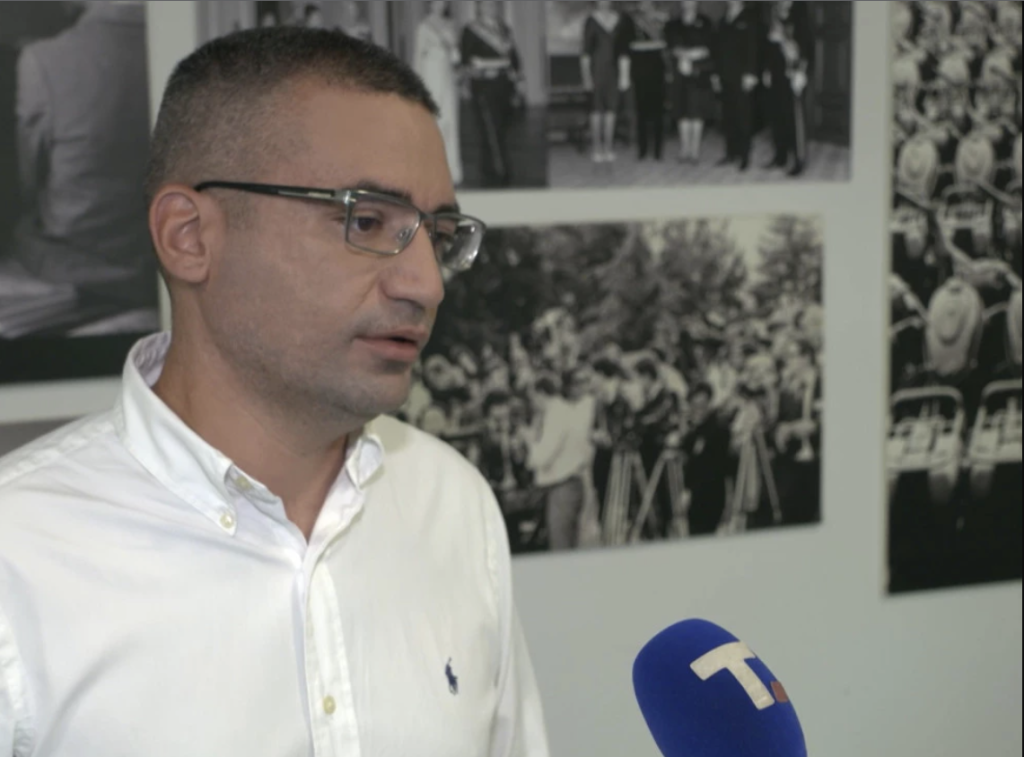
Dr. Ljubisa Bojic is a communication scientist, futurologist, and a leading authority on artificial intelligence (AI) alignment and its societal impacts. He earned his Ph.D. from the University of Lyon II, France, in 2014. Currently, he serves as a Senior Research Fellow at the Digital Society Lab, Institute for Philosophy and Social Theory at the University of Belgrade.
Aligning AI for Democratic Resilience: Addressing Digital Challenges in the Balkans through Ethical AI ImplementationThis research project investigates the impact of artificial intelligence technologies—particularly recommender systems and large language models—on democratic processes and social cohesion in the Balkans. As Southeast Europe undergoes rapid digital transformation, the integration of AI presents both opportunities and challenges. While technological advancements foster innovation and economic growth, they also risk exacerbating misinformation, social polarization, and the erosion of democratic values.The primary objective of this project is to develop strategic interventions and policy recommendations that align AI technologies with democratic principles, fostering digital inclusion and strengthening democratic resilience in the region. By critically examining the interplay between AI and democracy, the research aims to contribute to the successful integration of the Balkans into the European digital space, addressing regional security and ethical challenges.Building upon Dr. Ljubisa Bojic’s extensive research in AI alignment, communication science, and the societal impacts of emerging technologies, this project extends prior insights to the specific context of the Balkans. It analyzes how AI-driven platforms shape public discourse and influence political opinions, and how, without robust ethical guidelines and regulatory oversight, these technologies can inadvertently undermine democratic institutions. Through interdisciplinary collaboration and engagement with regional stakeholders, the project seeks to propose actionable solutions that ensure AI advancements support democratic resilience rather than hinder it. The anticipated outcomes include a set of policy recommendations, ethical guidelines for AI implementation, and a framework for continuous assessment of AI’s impact on society in the Balkans.
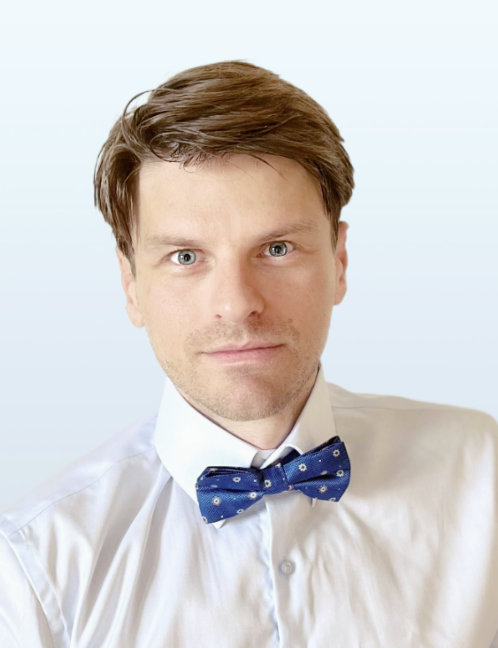
Milo Ivancevic is a PhD candidate at the Faculty of Economics and Business, University of Belgrade, specializing in market risk analysis through the application of Artificial Intelligence models. His doctoral journey includes research visits to Royal Holloway, University of London and University of Graz where he collaborated on advanced financial modeling techniques. With over 15 years of experience in quantitative research and financial risk management, he currently serves as a Senior Risk Manager at the Central Bank of Montenegro. His work includes monitoring risks of international reserves, designing frameworks for strategic asset allocation, and developing advanced risk models.Milo holds an MSc in Economics from Staffordshire University, achieved through the prestigious Chevening/OSI scholarship and BA in Economics from the University of Montenegro. His expertise extends to data analysis, financial forecasting, and machine learning, with proficiency in tools like Python, Stata, and Bloomberg. Milo is also an active member of Mensa and the UK Alumni Association of Montenegro, Milo is committed to advancing economic knowledge and fostering global collaborations. His career reflects a dedication to bridging the gap between academic research and practical applications in finance, ensuring stability and innovation in the field.
Digital transformation and its adoption in the Western Balkans face a number of different challenges, including limited technological infrastructure, economic constraints, and low digital literacy. Central banks, which play a crucial role in maintaining financial stability, are not immune to these challenges. Increasing digitization of financial services, particularly through Artificial Intelligence (AI), put significant pressure on the central banks in the region. Central banks must adapt to safeguard against systemic risks such as cybersecurity threats, economic fraud, and financial instability, by inclusion of AI solutions in their operations. However, the current state of AI adoption in the region’s financial sector, especially by central banks, remains underexplored. In the context of the Western Balkans’ growing IT ecosystem and skilled workforce, there is a critical need to understand how AI could be harnessed to improve financial oversight and security. This research aims to fill this gap, by examining the Artificial Intelligence adoption patterns and readiness of Western Balkan central banks compared to more advanced economies, while providing concrete steps to enhance their digital transformation.
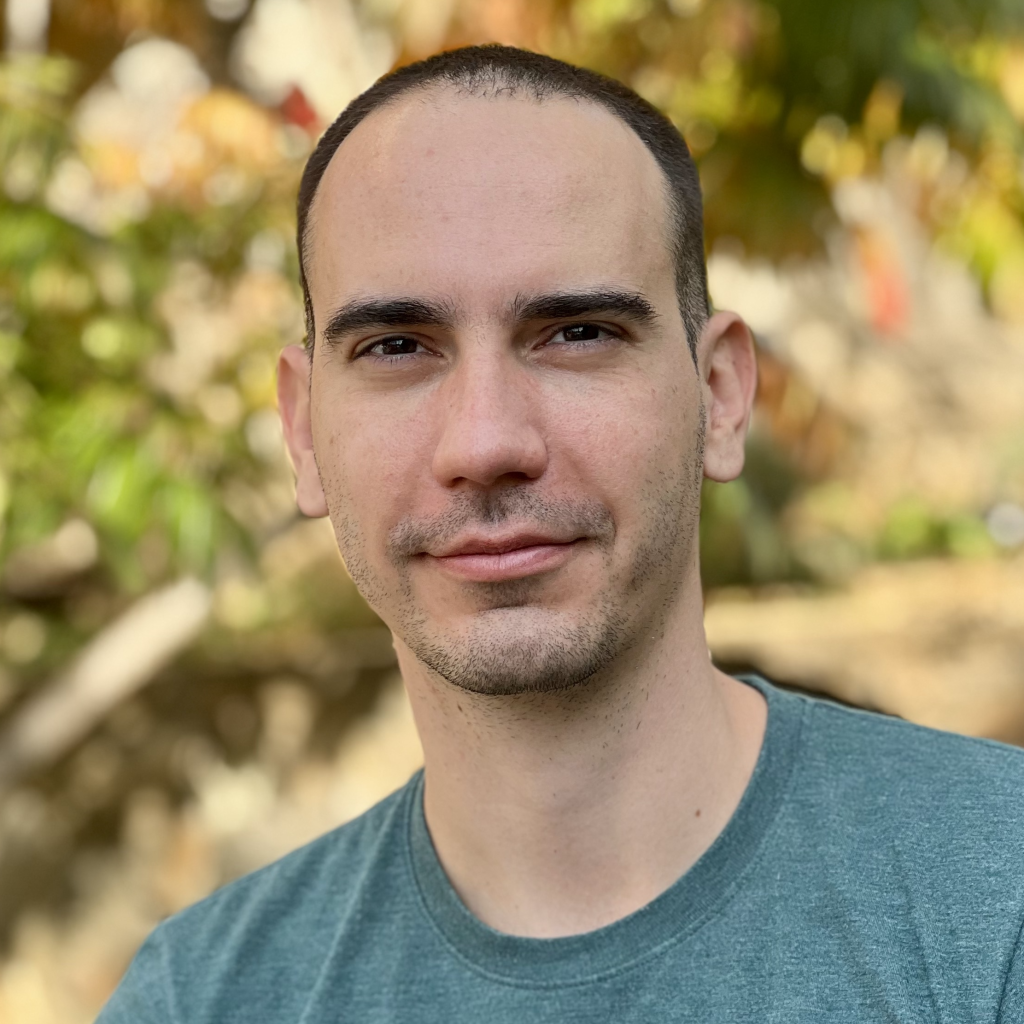
Miloš Kovačević is a research associate at the Faculty of Philosophy, University of Belgrade, Serbia. He holds a PhD in philosophy from the same university and writes on a range of topics in political philosophy, ethics, and the philosophy of education. Palgrave Macmillan published his latest work, ‘Emancipatory Education Through an Inclusion of Minority Political Views: Exploring the Concept of Indoctrination,’ in the book Rethinking Education and Emancipation: Diverse Perspectives on Contemporary Challenges.
This research explores the potential for implementing Employee Stock Ownership Plans (ESOPs) in Southeast Europe (SEE), with a focus on Slovenia and Serbia. As SEE face economic challenges such as SME succession issues and youth emigration, ESOPs present a promising solution for democratizing business ownership and enhancing economic stability. Drawing on Rawls’ notion of property-owning democracy and David Ellerman’s labor theory, this research will examine how Slovenia’s ESOP model can be adapted to Serbia. The study will employ a comparative desk analysis, coupled with expert interviews in Belgrade, to provide insights into the feasibility of ESOP adoption in the region. The outcomes will offer both a philosophical and policy-based roadmap to promote workplace democracy and address regional economic disparities. Key deliverables include a scientific paper and a policy analysis report targeting SEE policymakers.
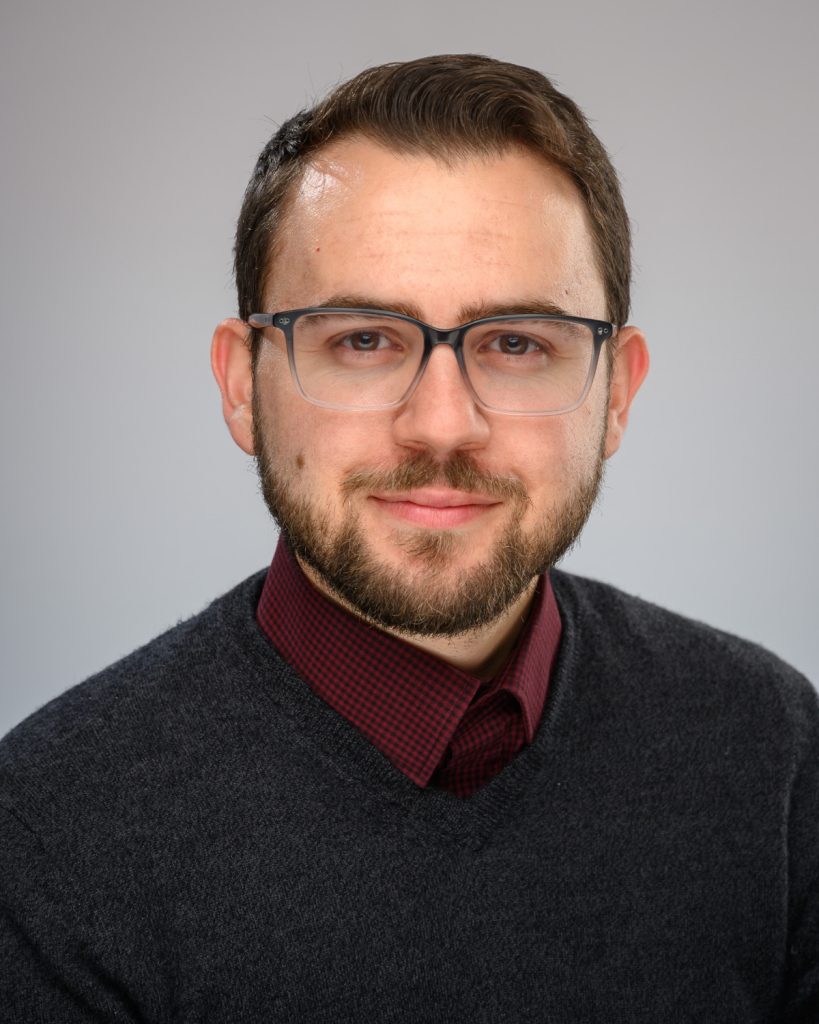
Ognjen Kojanić is an environmental and economic anthropologist with a geographical focus in the former Yugoslavia. He holds a BA in ethnology and anthropology from the University of Belgrade, an MA in sociology and social anthropology from Central European University, and a PhD in cultural anthropology from the University of Pittsburgh. He was a Humboldt Postdoctoral Research Fellow at the University of Cologne, a Visiting Lecturer at the University of Freiburg, and a Fellow at the Research Platform “Transformations and Eastern Europe” at the University of Vienna. He has published articles and book chapters dealing with labor, property relations, and class politics; infrastructure and human-environment relations; and the anthropology of European peripheries. His current research lies at the intersection of urban political ecology and infrastructure studies.
The project “Green Change from Below: How Grassroots Relations to Urban Infrastructure Can Shape a Just Green Transition in the Balkans” focuses on decision-making and social contestations related to the infrastructural assemblage in a former wetland area on the north bank of the Danube River in Belgrade. The guiding questions are: How can the grassroots understandings of the relationship between built and natural environment in cities influence green change? Specifically, how can already existing practices in relation to urban infrastructure show the way to positively shape coordinated actions in the Balkans that can drive the green and just transition? Data is collected using a mix of qualitative social science methods including ethnographic participant observation and interviews, archival work, and content analysis to study various aspects of infrastructural management that are relevant to understanding and coming up with responses to key challenges of the green transition in the Balkans. Broadly, the aim is to contribute to scientific knowledge and potential solutions that can inform urban environmental policy in the face of climate change. The research results will be of relevance to policymakers and practitioners who work on urban water and waste management, green infrastructure, and forestry and park services.
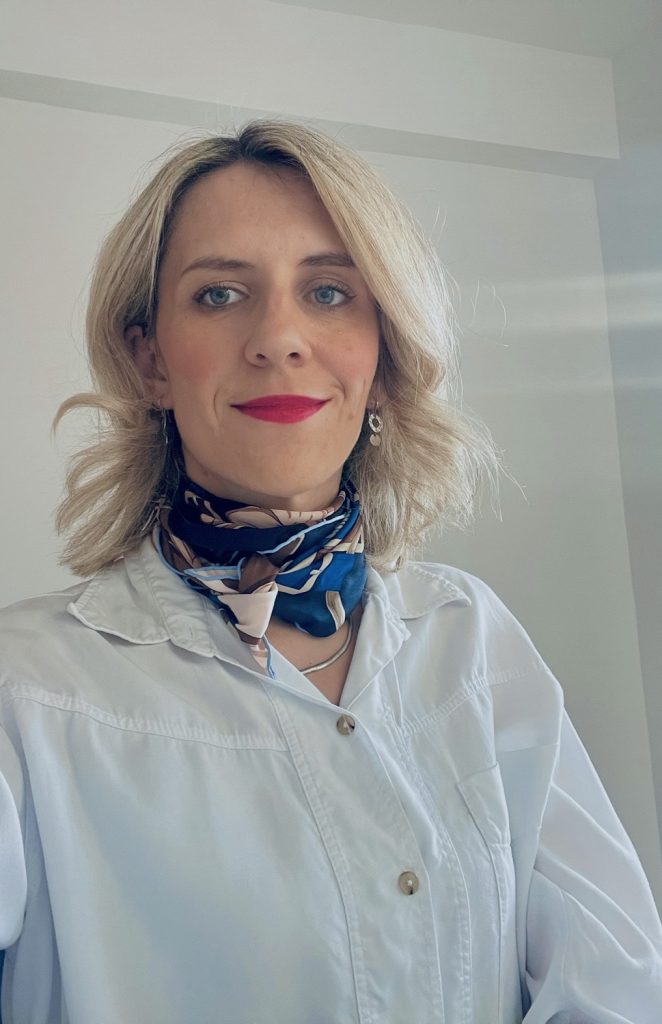
Olimpija Hristova Zaevska is the Founder and CEO of Elson Solutions and an expert in green finance, energy transition, and international business. She holds a PhD in International Business and Economics from Copenhagen Business School in Denmark. Olimpija brings academic rigor to consulting and policymaking and is working with development banks and development partners including EBRD, EIB, as well as USAID, GiZ, CIPE and the Ministry of Energy, Mining and Mineral Resources of North Macedonia on various projects. She consults on international cooperation and finance mobilization, investments in energy transition and innovation ecosystems. Olimpija often coordinates the work of various technical, energy, grid, financial and investment consultants to provide guidance on economic development or energy investments. Olimpija is also engaged as a green finance and climate risk consultant on greening financial systems in North Macedonia and Ethiopia and serves as green economy reviewer to the UNECE. Previously, as an international economy adviser to the Prime Minister and Minister of Finance of the Republic of North Macedonia, Olimpija worked actively with development banks on negotiating and structuring loans, designing state aid, implementing tax reforms, and public finance management.
This research investigates the presence and impact of Industry 4.0 ecosystems (I4ESes) (hubs, accelerators) across the Western Balkan countries and their influence on regional innovation. Utilizing a prior theoretical framework based on ecosystem theorizing, the study will map I4ESes comprising diverse actors, such as firms, universities, and NGOs, focusing on their structure and value creation. It will assess the impact of I4ESes on regional innovation from 2014 to 2023, measuring innovation dynamics and patenting activity using the EU Regional Innovation Scoreboard. The study aims to provide recommendations for enhancing regional innovation and green transitions in WB countries, utilizing I4ESes.

Peter Langford is an Associate Lecturer in Law at Oxford Brookes University, UK. His areas of expertise are in legal and political philosophy, legal sociology, social theory and human rights. Within the areas of legal philosophy and legal sociology, his research has centred upon the work of Hans Kelsen and Max Weber. Within the area of political philosophy, it has focused upon the work of Roberto Esposito (Roberto Esposito: Law, Community and the Political 2015) and Carl Schmitt (Order Crisis and Redemption: Political Theology after Carl Schmitt, co-authored with Saul Newman, 2024). In relation to human rights, his research has concentrated upon normative questions of global justice and human rights, fundamental rights in Gunther Teubner’s sociology of law, non-nationals and the European Convention of Human Rights, and the protection of environmental human rights defenders under the Inter-American Convention of Human Rights.
The objective of the research project is to develop a theory of environmental justice which expresses and reinforces the presence of a notion of environmental justice in the approaches of environmental civil society organisations, environmental grassroots movements and Green or environmental political parties in the Balkans. The research project adopts this particular focus because it understands that it is the existence and activism of these organisations, movements and parties which indicate an important and distinctive understanding of environmental justice. Therefore, that these groups and parties should be accorded a central importance in the wider conceptualisation of the process of Green change. These groups and parties operate in a difficult current context in which they occupy the position of a minority and are increasingly subject to resistance and obstruction. Beyond the clearly illegal and quasi-clandestine forms of fatal and non-fatal violence, threats and intimidation, the other complementary purpose of the project is to emphasise that their orientation to environmental justice requires the guarantee of their civil and political rights. These rights, as fundamental, human rights are those of freedom of expression and freedom of assembly. In other words, that these civil and political rights, even insofar as they given formal expression in relevant constitutional provisions, are fundamental human rights. This, in turn, entails that these fundamental rights should prohibit the recourse to substantive domestic criminal law and civil law in order to undermine the capacity for their effective exercise. The project understands the capacity to undermine their effective exercise as a broad one which extends from the explicit prohibition and overt suppression of demonstrations to the use of domestic criminal and civil law by politicians, business owners and corporations against public statements by individual environmentalists and environmental groups. The project, therefore, seeks, in this complementary focus upon human rights, to open a wider discussion of these environmental groups and parties as public environmental human rights defenders.
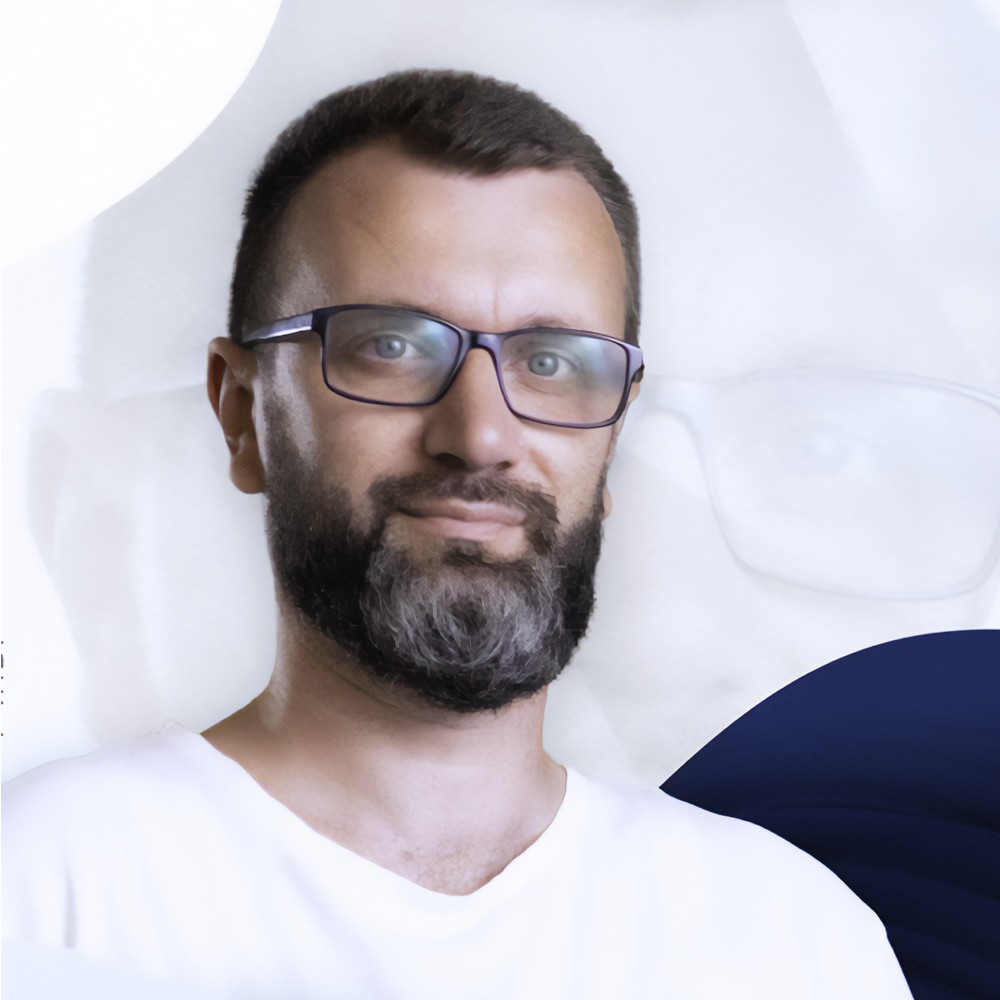
Born in Zenica in 1986.Safet Kubat holds a PhD in interdisciplinary social sciences from University of Sarajevo (2024) specializing in political ecology with foundations in urban ecology, political economy, and sustainable development. He also has a diploma in public health, a strong background in applied public health research and governance as well as experience in leading interdisciplinary projects on green economy and sustainable urban development in the Balkan area. Safet is a researcher, lecturer, speaker, public worker and a committed political organizer behind one of the biggest and most successful broad-based environmental movements in Bosnia and Herzegovina – “Budi promjena”- with more than 61 thousand members. He combines academic knowledge with activism ensuring that his work leads to real-world impacts. Over 15 years of various social activism, 15 years of professional engagement, with more than 30 published different publications, over 50 implemented projects, hundreds of lectures, and more than 1000 media appearances. In his work he focuses on green policy development and promotion aiming to foster socio-ecological transformation in the Balkan region. He is a regular contributor to international, regional and local environmental forums and academia with insights in sustainable policies and environmental preservation and is collaborating with many international institutions and numerous regional organizations on different research projects and public initiatives. His current research revolves around city modeling with a focus on examining and measuring the socio-ecological footprint of cities in both local and global contexts, and looking at how lower scale local conditions and processes impact and are impacted by planetary boundaries. He is a former UNESCO Champion of Peace and the recipient of the Philanthropic Heart Award in 2024.
Safet’s research focuses on developing a tailored Doughnut Economy model to address key ecological and social challenges in the Balkans. Based on the original Doughnut Economy framework by Kate Raworth and adaptations of the IPE model, the project aims to create a “transformative Doughnut Model” customized for three cities: Zenica, Belgrade, and Rijeka. The model incorporates 33 indicators, such as air pollution, renewable energy use, income inequality, and social satisfaction, to measure and balance ecological sustainability and human well-being. The primary goal is to propose a replicable Balkan Doughnut Model as a tool for public policy, enhance cross-border cooperation, and generate a unifying narrative for the region. By addressing shared challenges, including ecological degradation, political divisions, and socio-economic inequalities, the model seeks to foster trust, unity, and action among citizens, cities, civil society, and the academic community. This interdisciplinary effort will serve as a blueprint for guiding the Balkans toward a sustainable and equitable future, bridging the gap between current unsustainable practices and the safe, just space within the “doughnut.”
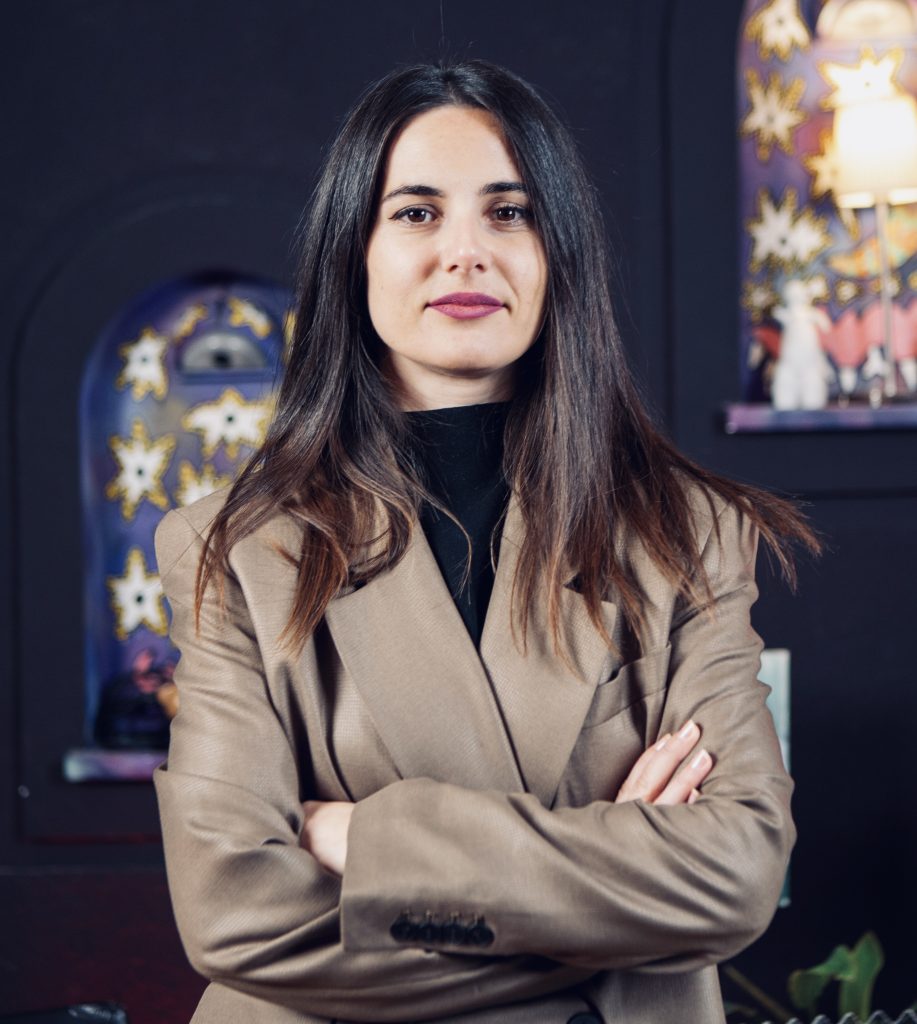
Slađana Kavarić Mandić (Podgorica, 1991) is a researcher, activist and poetess. She earned her PhD from the Faculty of Philosophy at the University of Montenegro, becoming the first female philosopher to complete doctoral studies at Montenegro’s state university. Her primary research interests include Marxism, Praxis philosophy, the philosophy of art, and Critical Theory. She has authored several academic articles and the book Philosophy of Danko Grlić (Belgrade/Zagreb, 2022). As an activist, Slađana co-founded the portal Normalizuj.me, where she contributes columns and organizes socially engaged forums. She is also the author of two poetry collections, People from Nowhere and Pontevedra, with her work translated into English, Slovenian, and Greek.
This research aims to evaluate and re-examine recent artistic actions within the field of ecological art, highlighting their undeniable potential for fostering broader societal emancipation and addressing the issues of unequal development in the Western Balkans. The project seeks to investigate museum exhibitions related to ecological activism, positioning itself as an academic response to the challenges of the green transition, which has been hindered in the Balkans by top-down political and economic strategies. This study will consider vibrant forms of ecological activism within the non-governmental sector as exemplary cases of cross-border cooperation. Furthermore, it will present methodological approaches for encoding ecological awareness within the artistic sphere and museum interventions, thereby universalizing the discourse and providing ideological and aesthetic valuations that amplify the impact of individual ecological victories for further artistic exploration.
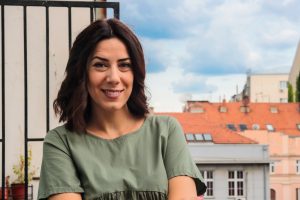
Ana Đorđević (1991) is a Research Fellow at the Institute for Philosophy and Social Theory. She obtained her BA, MA, and PhD in psychology at the University of Belgrade, Faculty of Philosophy. Her research interests are positioned in sociocultural and critical psychology, qualitative methodologies, and engagement studies, with a special focus on identity and subjectivity issues. She published several empirical and theoretical articles in national and international journals, as well as the monograph The Scent of Ajvar and the Scent of Lavender. Limitations and the Freedom of/from Ethnic Identification for Serbia’s Youth. She is an assistant editor of Critique: The Journal for Philosophy and the Theory of Society.
In contrast to political apathy and abstinence among the youth in the region, this research tends to provide fresh theoretical and empirical insights into young people’s political affect and political engagement. To do this, it will provide a summary of the study on youth political participation and a review of the literature on the connection between politics and emotions. Subsequently, the gap in knowledge on the various forms and platforms of youth political participation and engagement in the Western Balkans will be highlighted. Then, questions will be asked about the meanings, emotions, and future-oriented goals that young people aspire to attain in their sociopolitical environment, based on the alternative epistemological perspective in psychology known as the transformative activist stance (Anna Stetsenko). The research will include a qualitative empirical study on this topic among youth (18–30 years old) from Montenegro, Croatia, and Serbia to supplement the results of the predominately quantitative research.
PROJECT TITLE: “Remembering Wounded Landscapes: Environments as Shared Memory Sites Commemorating War Destruction in the Former Yugoslavia (REMINDED)”
“
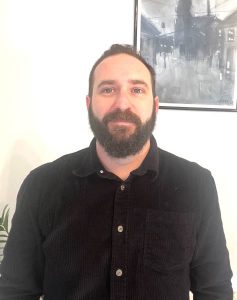
Josef Djordjevski is a postdoctoral fellow with the National Council for Eurasian and East European Research (NCEEER) in Washington D.C., where he is working on an environmental history of the Yugoslav Wars titled “Landscapes of Transition and Conflict” (LATRACON). Primarily an environmental historian, he received his PhD at the University of California – San Diego in 2022, where he defended his dissertation “A Seaside for the Future: Yugoslav Socialism, Tourism, Environmental Protection, and the Eastern Adriatic Coastline, 1945-2000s,” which was a history of the transformation of the Adriatic seaside during the Cold War. His latest publication is a contribution titled “Sailing Through Heritage: Nautical Tourism, Environmental Protection, Conflict, and the Making of the Kornati National Park in Socialist Yugoslavia,” in the edited volume Entire of Itself?: Towards and Environmental History of Islands, to be published with The White Horse Press in 2024.
REMINDED seeks to explore novel ways in which a culture of shared future can be established by collaborative and alternative commemoration practices around specific environments and landscapes. While the Wars of Yugoslav Succession (1991-1999) left a legacy of environmental destruction, environmental impacts from the wars have received little attention by scholars and local communities. This project therefore seeks to demonstrate the importance of commemorating environmental effects of armed conflict in the region by bridging scholars, students, and the public. The project will utilize novel methods to uncover ways that landscapes themselves can serve as monuments, and how collaboration in their commemoration can lead to a shared future.
The project will use novel methods, especially digital and virtual approaches, to ensure that the project’s goals are long-term, open to wider audiences, and sustainable. These will include blogs, social media posts, YouTube videos, and ultimately a website, where scholars, students, and the public throughout the region and beyond will be able to contribute towards the commemoration of specific sites. Specific sites will be selected from across the region, including at least one site from each country that has directly experienced environmental legacies of armed combat, leading to sustained collaboration and shared expressions.
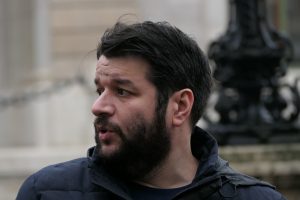
Kriton Kuci has completed his PhD studies in Balkan Studies at the Department of Balkan, Slavic and Oriental Studies, School of Economic and Regional Studies, University of Macedonia, Thessaloniki, Greece. His PhD dissertation is entitled “Flagging Albanianism. Banal nationalism in news on line portals in Albania”. He is a MA graduate of International and European Studies at the School of Economics, Business and International Studies, University of Piraeus, Greece. He has a BA Degree in Political Science and Public Administration from the School of Law, Economics and Political Science of the University of Athens, Greece.
He is Lecturer of Political Science at the Mediterranean University of Albania. He has participated in various scientific conferences in Greece, Albania, Serbia, Italy, Austria, Romania, Bulgaria, Montenegro, Bosnia and Herzegovina, etc., and has published several scientific articles in international scientific journals. His research interests include nationalism studies, discourse analysis, political systems, political theory, international relations theories, etc. He is fluent in Albanian, Greek, Italian and English.
This research aims to investigate the intricate relationship between banal nationalism, tourism (focusing on the phenomenon of the so called “patriotic tourism”, a term so used and liked in Albania where is common sense to name “our” nationalism as “patriotism”), and their impact on national identities, stereotypes, and societal relations in Southeast Europe. This study aims to delve into the ways in which banal nationalism manifests in the tourism industry, drawing attention to the symbolic representations, narratives, and practices that perpetuate nationalistic sentiments. It will examine how patriotic tourism, often fueled by political agendas and historical narratives, reinforces existing national identities and deepens societal divisions. In the case of Southeast Europe, a region historically marked by ethnic and political tensions, this study will analyze the implications of these dynamics on inter-societal relations. Moreover, the study advocates for alternative models of tourism that promote a culture of shared futures over nationalist divisions. It explores innovative approaches that prioritize cross-cultural understanding, dialogue, and collaboration. Drawing inspiration from emerging trends in responsible tourism, cultural exchange programs, and community-based tourism, the study proposes actionable strategies for fostering a more inclusive and interconnected future.
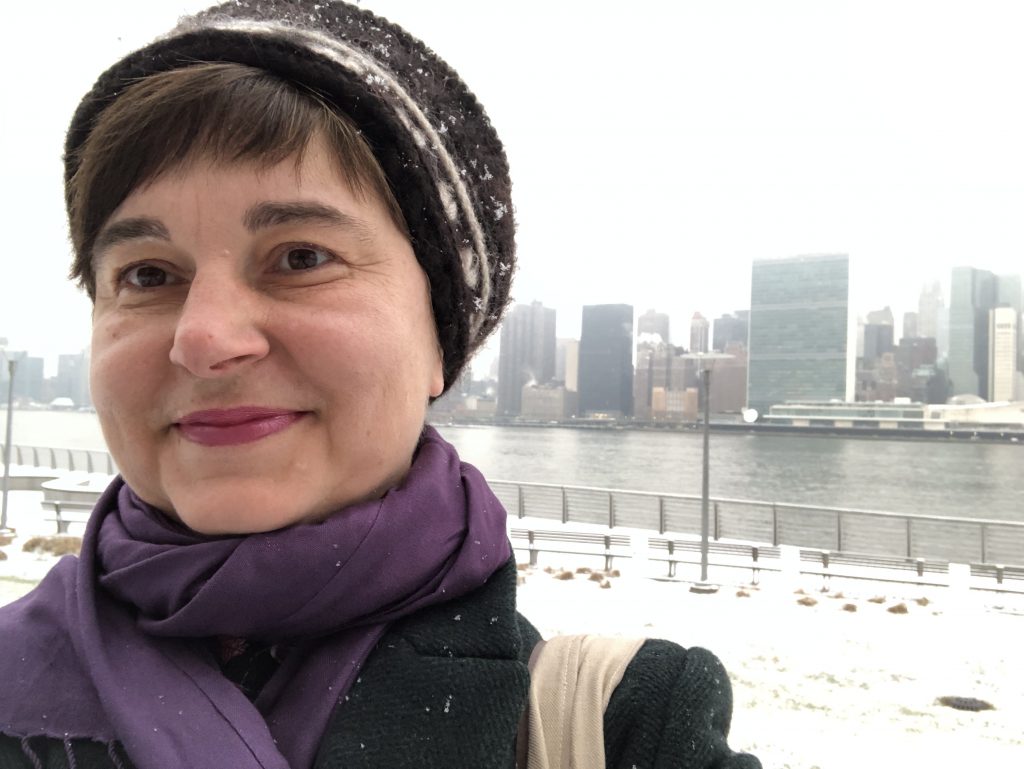
Valentina Otmačić is a researcher and practitioner in the fields of peace, conflict transformation and human rights.
She received her PhD in Peace Studies from the University of Bradford (UK), with a thesis titled “Resisting division along ethnic lines: a case study of two communities who challenged discourses of war during the Yugoslav conflict 1991-1995”. Her main research interests are in the areas of resistance to violence and constructive conflict transformation. She has published several book chapters and articles on these topics. She is currently undertaking research on resistance to identity-based violence and segregation in Northern Ireland.
As a practitioner, she worked with several UN Agencies and international NGOs supporting war-affected civilians in Croatia, Bosnia-Herzegovina, Tanzania, Burundi, DR Congo, Lebanon and Colombia. She is also an expert in strategic advocacy and a trainer in conflict transformation. Her resource book “Conflict as a challenge: enhancing children’s capacities of constructive conflict transformation” was published in Lebanon by Arab Resource Center for Popular Arts.
The official narratives of the past in the countries ensuing from former Yugoslavia are almost exclusively focusing on violence. Providing simplified accounts of “our heroes/victims” and “their villains”, these narratives strongly contribute to the persistence of ethnonationalist agendas and deepening of inter-ethnic cleavages in the region. At the same time, lived experiences of collaboration, friendship, and joint achievements of members of different ethnic groups from former Yugoslavia, although plentiful, seem to be ignored and exposed to “deliberate forgetting”.
Both negative and positive memories can be activated to promote specific political and social agendas. However, while mechanisms for deploying negative memories of inter-group hostilities to mobilize people for (more) violence have been studied extensively, there is a gap in the knowledge on the activation of positive collective memories to support nonviolent political agendas.
The main aim of the study Memory of Good Things is to explore in what ways positive inter-ethnic experiences and related good memories of joint past be strategically mobilized to support a culture of shared future. To address this research question, I will firstly facilitate learning about the strategic use of positive past in the practices of three ethnically diverse communities in Croatia and Bosnia-Herzegovina which resisted ethnic segregation and violence during 1991-1995 wars. Secondly, I will examine the current state of the integration of such positive narratives in the public memory at local and national level. Finally, I aim to identify and outline the opportunities for strategic deployment of positive inter-ethnic past to build a shared future in Southeastern Europe envisioned as a region where, as expressed by the wartime mayor of the city of Tuzla Selim Bešlagić, “national, political and religious differences among citizens are not considered a curse, but a source of beauty and wealth”.
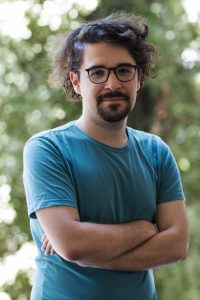
Karlo Kralj is a postdoctoral researcher at the Faculty of Political Science of the University of Zagreb. Karlo holds a PhD in political science and sociology from Scuola Normale Superiore, where he also worked as a postdoctoral fellow. His main research interests relate to social movement strategies and tactics, interactions between social movements and political parties, and political organizing. Primary regional focus of his research is on Southeastern Europe.
Over the past decade, we can observe a re-emergence of new left electoral actors in post-Yugoslav space. These actors present themselves as ‘movement parties’, a hybrid organisational form that tries to innovate party-political organising and challenge the previously existing centre and centre-left parties. While The Left (Slovenia), We Can (Croatia), and Green-Left Front (Serbia) have by now achieved significant success in their electoral engagement, this project looks more closely at their current strategic predicaments. On the one hand, it aims to offer an analytical overview of the strategic framing through which they position themselves within the broader political conflict. On the other hand, it aims to map key organizational predicaments that these actors will confront in the near future. Empirically, the project will be based on framing analysis of movement parties’ leaders’ statements, including extensive desk research and literature review.
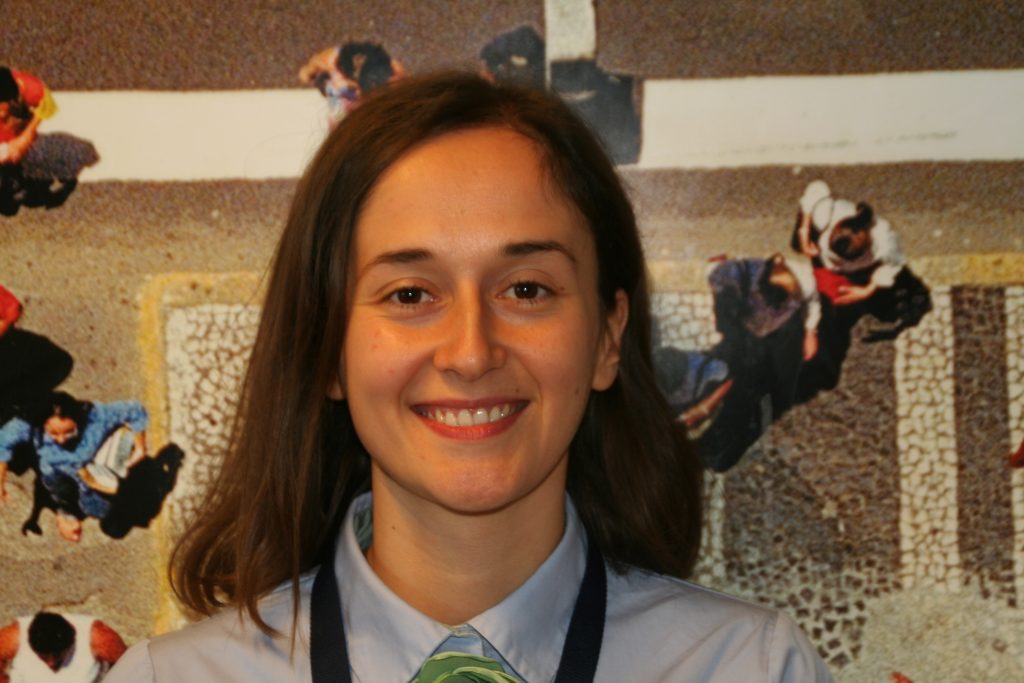
Ivana is a recent doctoral graduate from Meiji University in Tokyo where she is currently affiliated as a Research Assistant. Her academic and professional journey has been centered at the intersection of applied urban research and architecture. She has international practical experiences at Kengo Kuma and Nikken Sekkei Architects in Japan, Al Borde Arquitectos in Ecuador and at a university in Germany. Moreover, Ivana has been a senior associate in the Urban Planning Department at two municipalities and has been a faculty instructor in her hometown, Skopje.
This research project focuses on the evolution and impact of public spaces along two vital watercourses, the Vardar River and its tributaries in Skopje and the Ljubljanica River and its tributaries in Ljubljana. The study aims to conduct a comparative analysis of linear blue and green public spaces in the Balkans, assessing cases with varying levels of success. Ljubljana serves as an exemplar of sustainable urban solutions, while Skopje grapples with urban challenges amid untapped potential. The research seeks to contribute insights into post-socialist urban development, patterns of corridor usage, issues of inequality and social justice, and potential strategies for fostering a shared urban future. The proposed methodology, including the Good Public Space Index and the researcher’s Multi-Scale Framework, will be applied to assess the effectiveness and “lived” quality of public spaces in the selected cases. The findings aim to enhance understanding of urban livelihood and solidarity, fostering discussions on equitable urban development in the Balkan region.
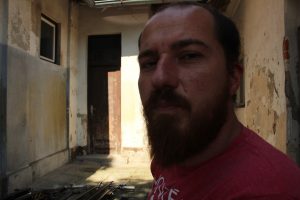
Born in Sarajevo in 1981. He has a diploma in psychology and a master diploma in social sciences from Sarajevo and Bologna Universities. He has more than 15 years of experience in primary and applied research in social sciences and has done work and published papers and articles exploring a range of topics including political institutions, migration, urban sociology, political economy and contemporary history. For the past decade he worked closely with the Association for Culture and Art Crvena from Sarajevo. His current research focuses on questions in political economy, history of economic theory and practice, and on the theory of social forms.
Present research will explore a very particular institution for development and investment financing that was part of the institutional set-up of socialist Yugoslavia during its entire and rather short life. The institution was officially called “self-contributions” and consisted of regular monthly payments levied over personal income for all employed inhabitants of a city or a certain municipality during the previously agreed period of time (from 6 months to 5 years). What is remarkable is that decisions to adopt such measures were decided at general referendum procedures. By careful analysis of this institution, its history and the related political practice, the research seeks to contribute to two goals. First, it seeks to expand our knowledge on the history of socialist Yugoslavia by providing a detailed study of self-contributions as a unique democratic source of investment funds for crucial development project and improvements in social and material infrastructure. Second, it looks at how insights into the way they functioned, the role they played in the more general systems of social planning, and financing as well as democratic processes they depended on, can be used as inspiration for policies aiming at deepening democratic rule and at giving more agency to citizens in planning, financing and implementation of development programs and projects.

Danijel Matijević earned a PhD in history and Jewish Studies in 2023 at the University of Toronto, where he researched the global history of genocide and mass violence in the 19th and 20th centuries with a focus on Southeast Europe. His dissertation dissects Ustašism, the ideology of the Ustaša movement, and local dynamics of ideological diffusion and intergroup relations in the context of mass violence and genocide. Among a series of research grants and fellowships, Matijević was the recipient of Vanier Canada Graduate Scholarship, the most prestigious doctoral-level academic award in Canada. His research received further support from the Conference on Jewish Material Claims against Germany, the Holocaust Educational Foundation at Northwestern University, and Fondation de recherche du Québec – Société et Culture. Matijevic presented his work at a number of academic conferences, including Lessons and Legacies and the International Association of Genocide Studies. He has extensive teaching experience in modern history and history of the Holocaust, most notably at McGill University.
I want to propose a research project that revolves around the history of Kampor concentration camp on the island of Rab. During its existence in 1942-1943, Kampor held more than 15,000 prisoners whom Fascist Italian authorities considered “undesirable” in political, ideological, racial, or ethnonational terms. I intend to write an English-language academic article on the massive rescue operation of some 2,500 of the camp’s Jewish prisoners, which the Yugoslav communist resistance movement put into motion after Fascist Italy’s capitulation in fall 1943, anticipating the German conquest of their former ally’s holdings in East Adriatic. Beside the rescue operation itself, which had been organized by Partisan leadership, the housing of the Jews of Kampor was a complex operation in itself, dependent on intergroup cooperation and a focus on coexistence, involving the efforts of ordinary people from the entire spectrum of Croatia’s and the wider region’s diverse ethno-confessional groups. This is the aspect of the story of the rescue of Jews of Kampor that I aim to explore in greater detail, situating the event into the broader European context of rescue operations during the Holocaust.
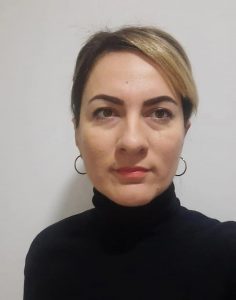
Elona Gjata is a linguist with a Doctor of Sciences in Linguistics from the University of Tirana. Her research combines linguistics 0and cultural anthropology, focusing on society and its problems in different regions.
Dr. Gjata worked as a project coordinator in Berlin at the OASA organization from 2021 to 2022. The project was called “We Remember! The Third Generation Tells” and focused on the rescue of Jews from Albanian families during the Holocaust. In 2023, she coordinated the “Kosovo in 100 Photos” project and authored a book with the same title.
In 2019, Dr. Gjata was the recipient of an Erasmus scholarship student and PhD researcher at Humboldt University in Berlin. During her doctoral studies, she was a lecturer in the Albanian Language Department at the University of Elbasan and Tirana.
In 2021, she studied the Goran community in Albania and Kosovo, published in Innovative Paths of Albanology, Peter Lang, Berlin 2023. She is now preparing for postdoctoral studies in Germany.
She is currently interested in researching the Croatian community in the village of Janjevo, Kosovo.
Elona Gjata heads the NGO “Albanian Institute of Cultural Studies” in Pristina. Through her projects, she aims to bring a unique perspective to the cultural diversity of various communities in Kosovo.
This study will examine the role of bilingualism in multicultural societies and its impact on forming ethnic and regional identities. Referring to the analysis of the use of bilingualism in the Albanian community in North Macedonia, we will reflect a clear picture of how this linguistic phenomenon can be used as an instrument for improving identity and how it has influenced the breaking of the line of nationalism in relationships with other social factors. Also, during the study, we will discover the influence of bilingualism in the transformation of the traditional concept of nationalism or the cases where bilingualism is used as a tool for adaptation and affirmation of the identity of the Albanian community, with a particular emphasis on the young generation. In order to give a more explicit result on the role of bilingualism in this environment, this study will refer at the same time to various historical and social developments—moreover, language policies related to the Albanian community in North Macedonia.
Keywords: bilingualism, nationalism, community, ethnic and regional identity, multicultural environment, language policies etc.
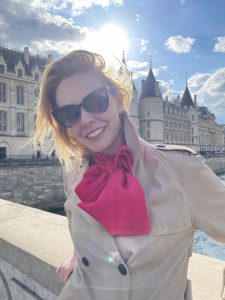
Milica Božić Marojević (1980) was born in Belgrade. She completed her bachelor, master and PhD studies in Art History at the Faculty of Philosophy, University of Belgrade, where at present she teaches as Associate Professor. She has also been teaching at the Faculty of Applied Arts and Faculty of Education in Belgrade, as well as at the Faculty of Philosophy in Kosovska Mitrovica. Since 2017, Milica Božić Marojević has been actively participating in the organization and implementation of the continuous learning program at the Center for Teacher Education of the Faculty of Philosophy, University of Belgrade. In 2019, she was elected as director of the Centre for Museology and Heritology. Before that, Milica Božić Marojević was a journalist at Danas Daily, Researcher at Humanitarian Law Center and an International Memorialization Specialist for UNDP Bosnia and Herzegovina.
For more than 20 years, she has been interested in the problems of heritage dissonance and reconciliation through art, culture and heritage memorialization. As a regional and international consultant for the management of unwanted heritage, she had organized and participated in various researches and trainings; programmes of permanent education and specialization; curated several exhibitions and wrote more than 30 scientific papers with the focus on the social, cultural and political implications of forgetting events from the past.
In addition to the social role of heritage, its policies, governance, presentation and interpretation, her areas of expertise are also promotion of activism and civic education. Her Ph.D. thesis “Sites of Conscience as Guardians of the Collective Memory” was the first study in the field of heritage dissonance and its role in post war reconciliation processes conducted in the region.
Her first book (Ne)željeno nasleđe u prostorima pamćenja. Slobodne zone bolnih uspomena/(Un)Wanted Heritage in Remembrence Spaces. Free Zones of Painful Memories was published in 2015, as the result of pioneering research in war heritage memorialisation in Yugoslav spaces, and is the first publication of its kind in the Serbian language. Her second book Metod kao predmet ili predmet kao metod. Poučavanje (o) umetnosti u osam koraka/Method as Subject or Subject as Method. Teaching (about) Art in Eight Steps was published in 2022 and is a summary of her years of experience in the field of education through art and culture.
Public spaces and their visual culture are active participants in creating of public knowledge. That knowledge is primarily represented and recognized through monuments and/or different memorialization practices. However, how that space looks like and what politics and policies represents is never accidental. It is something that is always decided by the ruling elite. Even though that does not necessarily mean that the ruling elites are going to have a negative attitude towards the previous regime or representatives of minorities in general, in the Western Balkans region it is a rule. Changes in the domain of political climate here are very common and they can easily be traced in the public space appearance too. In those circumstances, (cultural) heritage seems to be another victim. It suffers not just for the sake of new ideology, but also in order people to forget their past. When it comes to the so-called difficult places and spaces, the situation in the domain of collective memory is even worse. It looks like we are in a vicious circle of the permanent present built on the remnants of nationalist and exclusive accounts of the past. Because of that, a progressive vision on future is missing. Silenced and marginalized memories, as well as contested histories, seem to be the dominant narratives in everyday life. The roles of certain public figures are being re-examined, the culture of cancellation is stronger; we are afraid of refugees, we blame them for diseases, the increase in unemployment, religious fanaticism. Although experts insist that culture and arts unite us, how does it happen that they actually separate us?
The basic research direction is motivated by a long-term search for an answer to the question: how can Serbs and Albanians live together again after everything that happened in Kosovo? This led to further doubts – what are our points of similarities; what kind of culture of memory do we want to cherish, whether and how heritage, that is, the past can help us in building a better future; what is the role of education in this? The focus of the research is directed at young people in Belgrade, i.e. at those who do not remember the controversial events at first hand, but formed their views about them through family stories, education, and memory policies promoted by the ruling elites. Although the problems of young people are similar in Belgrade, Kosovska Mitrovica and Priština, they do not think about how to get to know each other better and how to cooperate, or how together they can create democratic, multi-ethnic, multi-confessional, open, plural, and inclusive societies.
Considering heritage as a source for knowledge seems obvious, but the aim of this project is to invite us to question it critically. My idea is to highlight specific problematic issues, but also potentials for representation involved in such difficult heritage, and to identify and analyse ways in which they can contribute to social reflection. I would also like to inspire analytical reflection on heritage and the values and power dynamics attached to it, and to facilitate dialogue about the uses of the past in the present. Cultivating a culture based on facts is indispensable. Yet, equally important is to formulate and foster a “culture of a shared future” in the region – bringing forward narratives, evidence, and politics to replace a culture of hostility with a common vision of a joint future. In that sense, this research is part of a long-standing effort to show that heritage is here to bring us together.
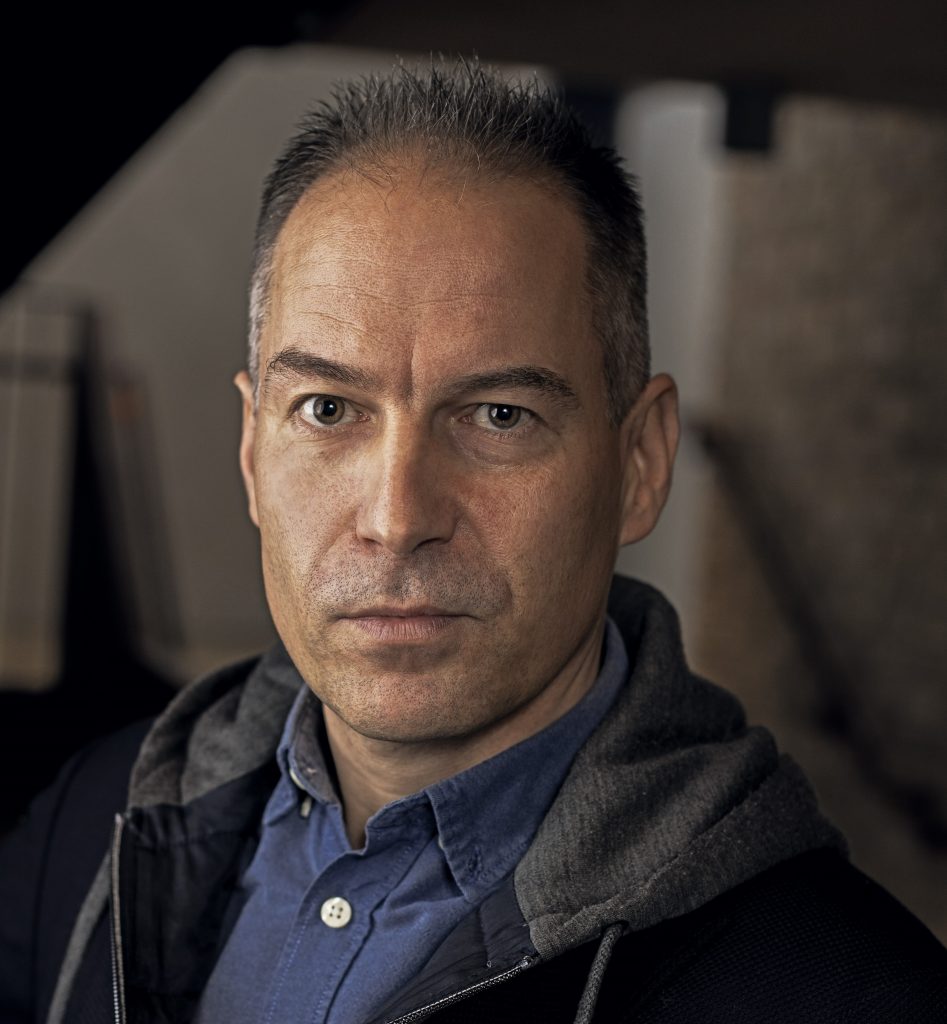
Péter Krekó is a think-tanker and an academic, with a background in social psychology and political science. He has a strong interest in disinformation, political polarization, conspiracy theories, and malign foreign influence. He has published extensively on these topics in academic journals and the leading international press. He is the director of the Political Capital Institute, a think tank in Budapest. It is currently the consortium leader for the Hungarian Digital Media Observatory, an anti-disinformation hub supported by the European Commission under the umbrella of the European Digital Media Observatory (EDMO).
Peter Kreko’s research project focuses on the social psychological processes of informational autocracies: regimes that can be successful through the manipulation of information. More specifically, he deals with the phenomena of informational autocratization in Central and Southeastern Europe, with a special focus on Hungary and Serbia. The study aims to analyze the mechanisms of state-sponsored information manipulation and explores viable strategies to counteract such practices. Drawing upon a comprehensive methodological approach that includes desktop research, interviews with key stakeholders, and comparative attitude surveys, the project seeks to shed light on the extent and impact of media centralization, the role of social-political polarization in the acceptance of disinformation, and the effectiveness of various resistance strategies employed by NGOs, journalists, and politicians. This research is important for understanding the evolving landscape of information manipulation within regimes with a hybrid nature both institutionally – combining features of democracies and autocracies – both geopolitically – with a Western and Eastern orientation at the same time. At the same time, the two neighbouring countries, while having many similar features in their politics, and professional, leader-centric spin of information, are very asymmetric in their integration into the Western institutional sytems (EU and NATO). By comparing the informational control strategies in Hungary and Serbia and extending the analysis to other Central and Southeastern European countries, the project not only provides an academic contribution to the field but also offers practical insights for policymakers, civil society, and the media to combat the challenges of informational autocracy.
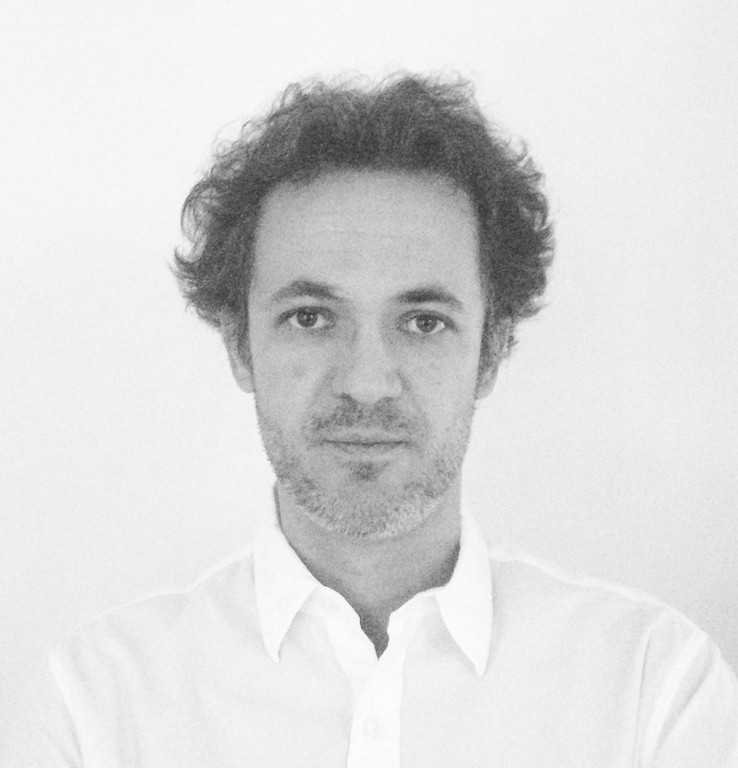
Aleksandar Bošković is Lecturer in Bosnian-Croatian-Serbian at the Department of Slavic Languages and Literatures at Columbia University. He is a scholar of Russian and East European modernism, Yugoslav, post-Yugoslav and Balkan Studies, with a strong background in comparative literature, critical theory, and visual studies. He specializes in avant-garde literature and experimental art practices explored through the lenses of comparative media. He is the recipient of several grants and fellowships, including Collegium de Lyon Fellowship (2019-2020) and Michael I. Sovern/Columbia Affiliated Fellowship at the American Academy in Rome (2023-24). Bošković is the author of the monograph The Poetic Humor in Vasko Popa’s œuvre (2008), and co-editor of The Fine Feats of the ‘Five Cockerels’ Gang: A Yugoslav Marxist-Surrealist Epic Poem for Children (2022) and Zenithism: A Yugoslav Avant-Garde Anthology (2023).
My project investigates the relationship between negation practices across different arts and media in the former Yugoslavia—literature, film, visual arts, radio—and the notion of value(s). The aim of my project is twofold. First, it is to stress that the legacy of Yugoslav Zenithism should be recognized as the “conceptual unconscious” of the experimental art practices in Socialist Yugoslavia. The second, and more noteworthy goal is to offer a completely new perspective on negation practices of Yugoslav experimental art, bringing them in close relation to the concept of (symbolic, economic, social, and political) value(s). Value is a key issue if we perceive social worlds as a project of mutual creation, and a shared culture, as something collectively made and remade. My research contributes to the current debates on Yugoslav culture and experimental art by demonstrating that the question of value (along with the concept of “nothing” as its condition) is the kernel of vanguard cultural narratives of a shared future. It pinpoints that such a “culture of a shared future” is not one of identity, but of responsibility. Radical Yugoslav art practices remind us that the same principle applies to post-Balkans and Europeans: responsibility instead of identity.
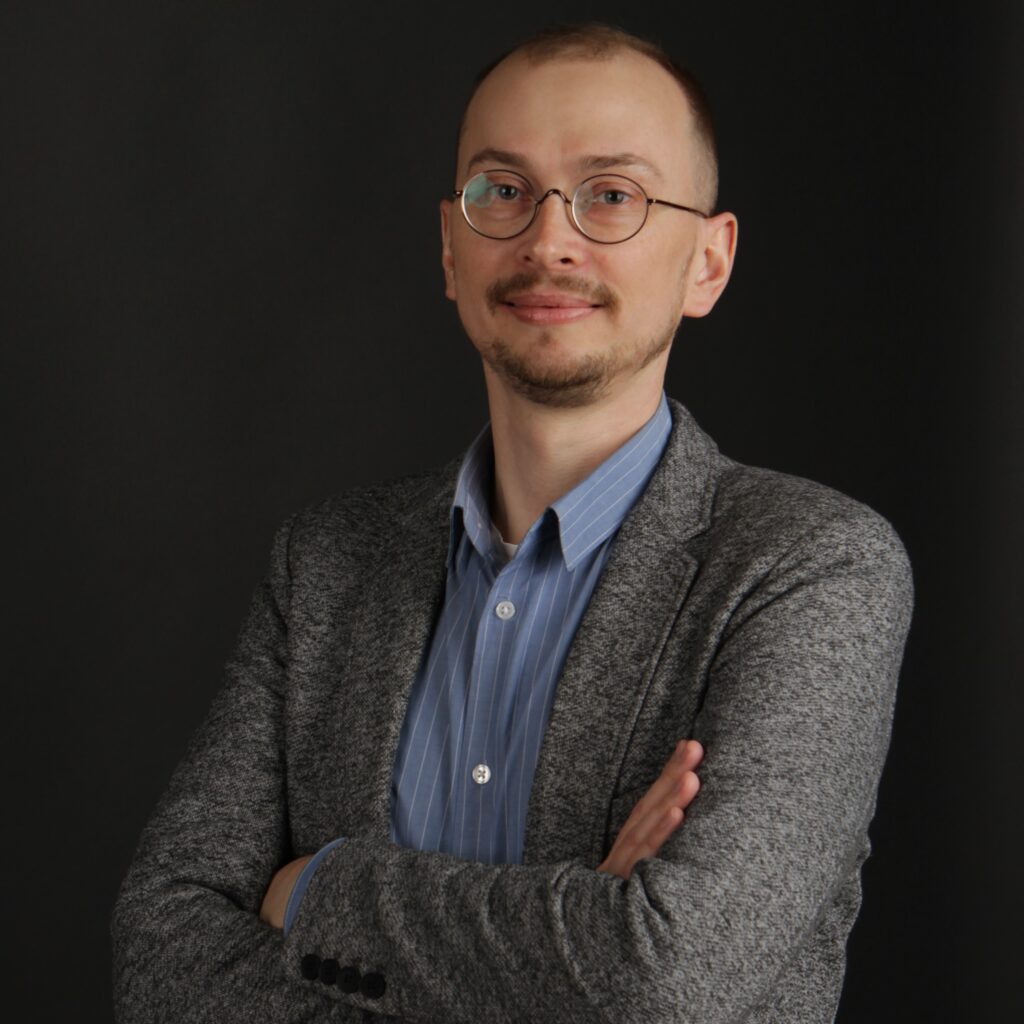
Associate professor at the Philosophy Department of Siberian Federal University, Russia. Earned his PhD in Social Philosophy in 2007 with his dissertation on the concept of the emerging global society. He also holds an MEd degree from Kent State University, USA. Mikhail developed multiple courses in Philosophy, Critical Thinking, and Educational Technology. His research projects focus on the social implications of educational technology, the issues in digital philosophy, and various aspects of instructional technology and design for teaching philosophy.
In his research project, Mikhail explores the concepts of ‘connectedness’ and ‘seamlessness’ in relation to the philosophy of education and the philosophy of technology.
His hypothesis is that a seamless educational experience constructed by the ICT-driven educational systems has to be filled with intentional and unintentional interruptions and disruptions in order to support human agency.
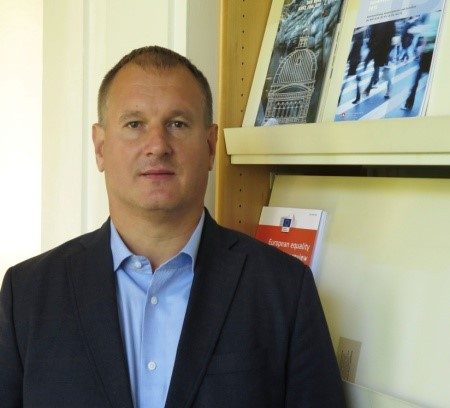
Ph.D. in European and International Law. His focus of research interests is on EU external relations, particularly with Ukraine, Russia, and countries of Eastern and Southern Neighborhood.
This research offers a comparative analysis of the EU’s conditionality for the countries currently heading towards the EU membership – Ukraine and countries of the Western Balkans.
The application of the political conditionality for the CEU countries in the course of the Enlargement of 2004 was recognized as a success story. However, its further application was much less successful. The Balkan countries have always been one of the major focuses for EU foreign policy, with two countries (Croatia and Slovenia) having managed to become part of the EU and others currently being at different stages of the integration process.
Although the countries of Western Balkans and Ukraine were communist in the past, there is a number of differences between the countries from the perspective of political, social, and legal systems. Thus, the foci of the EU’s conditionality have been rather diverse. There is also a certain difference in terms of the implementation of the conditionality as well as in the outcomes.
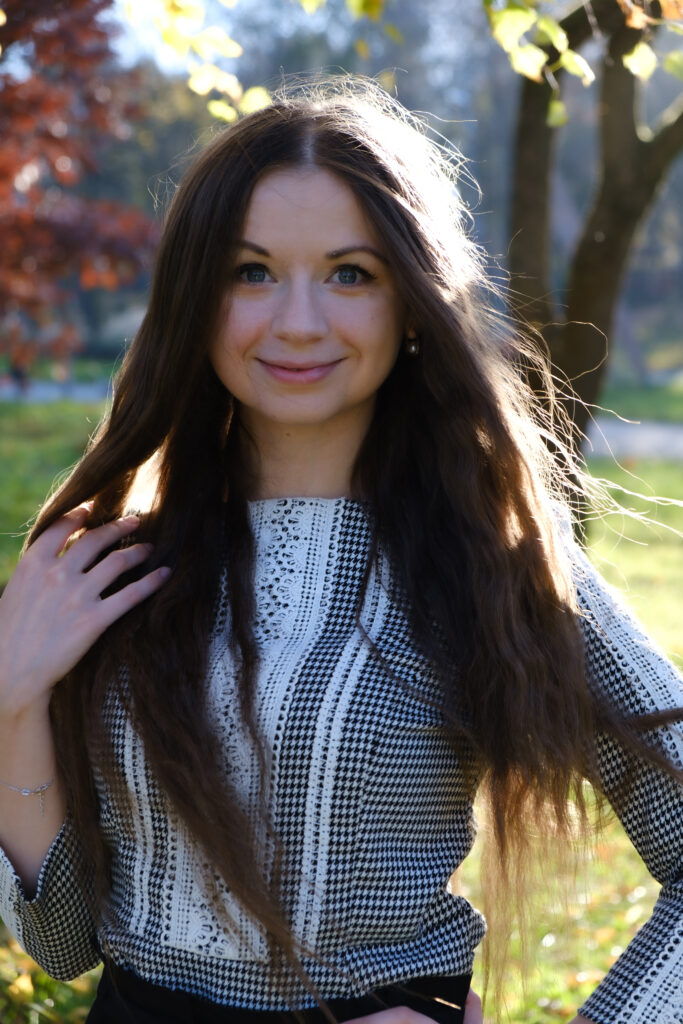
Olha Nykorak combines being a research fellow in the sphere of constitutional law at the Ivan Franko National University of Lviv and coordination of educational projects as a project and program manager at the Ukrainian Catholic University. Previously Olha conducted research in Eastern European studies at the University of Warsaw as a visiting scholar, studied international public law at the University of Tartu and conducted research at the University of Graz. She obtained her analytical skills and experience in policy design as a legal and policy advisor to a member of the Ukrainian parliament and conducting analytical reports and massive online courses in think tanks.
Olha is an alumna of the Policy Designers Network and ReThink.CEE program of the German Marshall Fund of the United States, a graduate of the Polish and European Law School of the Jagiellonian University, and a European Forum Alpbach scholarship holder. Her research interests include constitutional identity, abuse of law through distorted legal narratives, European constitutional values, transnational constitutional law based on shared values, and interrelation between national and supranational law.
In the research, the concept of “identity” is going to be characterized from the point of view of philosophy, psychology, and sociology. Based on these various approaches, general traits of identity as a social collective concept will be distinguished.
The notion of constitutional identity has been frequently used for purposes of both European and internal law. Nonetheless, considering the examples of newly-formed or reevaluated constitutional identities in Ukraine and Balkan states it is necessary to reconsider its understanding not only in the context of protecting domestic law from the supranational rules, but also as the nature of the constituent power of the people which can consolidate the nation and support national security. In order to research the genesis of the constitutional identity concept, its history of origin and functions will be compared.
Universal constitutional values such as human dignity, justice, democracy, and the rule of law constitute integrating features of identity while distinguishing features are defined by national constitutional values. Among them, the most characteristic are the constitutional status of state (or official) language, constitutional preference of secularism or secularity, constitutional approach to national security, and external geopolitical orientations and forms of manifestation of national identity. All of these features will be thoroughly characterized in the research based on examples of South Eastern, Eastern and Central Europe.
The history of the creation of the constitutions of the world demonstrates: the urge for unity as the essence of the constitutional identity at the initial stage arose because of threats (it is particularly relevant for Ukraine right now). Three main values were protected foremost by the constitutions: life, security and property. In Ukraine, as a European Union candidate, constitutional identity is also changing, primarily because of harmonization of legislation with the acquis communautaire. The formation of constitutional identity can be divided into three stages: before 2014 (the Revolution of Dignity), 2014-2022, and after the 24 th of February, 2022. By 2014, the priority task was to deprive the Soviet legacy. However, in 2014, the emphasis shifted: the most important thing was to develop its own model of constitutional identity, which, moreover, confirms the aspiration for European integration.
The full-fledged war proved that Ukrainian consolidation is primarily based on constitutional values, above all – dignity and freedom. Even though cultural, religious, and linguistic borders seemed blurry, a constitutional basis is supposed to unite the nation from Lviv to Kharkiv and Kyiv to Mariupol. Thus, this research is aimed at figuring out the role of the constitutional identity of Ukrainians on territorial integrity and security and vice versa.
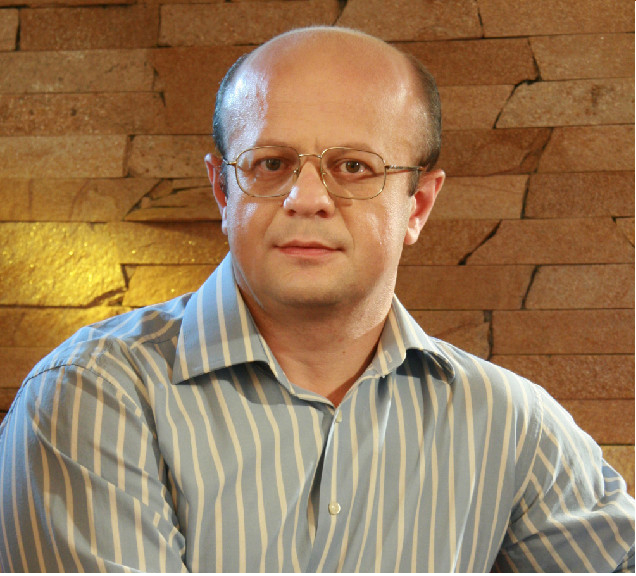
Oleksiy Polunin is a professor at the department of psychology of the National University of Life and Environmental Sciences of Ukraine in Kyiv. He has a PhD in psychology from the National Taras Shevchenko University (Kyiv), and a Dr. of Sciences degree (Dr. habil.) in psychology at the Institute of social and political psychology (Kyiv). The main theme of his research is human time processing, which includes such topics as individual timing mechanisms, psychological methods of time studies, the qualitative and quantitative aspects of subjective present time, cognitive coding of time direction, the temporal dimension of human experience, mental representation of time flow and decision making. In recent years he has been focusing more on philosophical topics, especially metaphysics of time.
The project belongs to cognitive science. It combines the philosophical theories of causality within the manipulability approach and the psychological findings on mental representation of time flow.
The manipulability approach to causality was chosen because it takes an action as a key variable for defining a cause. The goal is to examine how far the human cognitive system contributes to the variation of a mental representation of cause and effect. As a ground of such variation, we take the cognitive representation of time flow.
The project answers the question of whether and if yes, how far the different mental representations of time flow affect the human ability to represent causality; what are the limits of a stable causality representation?
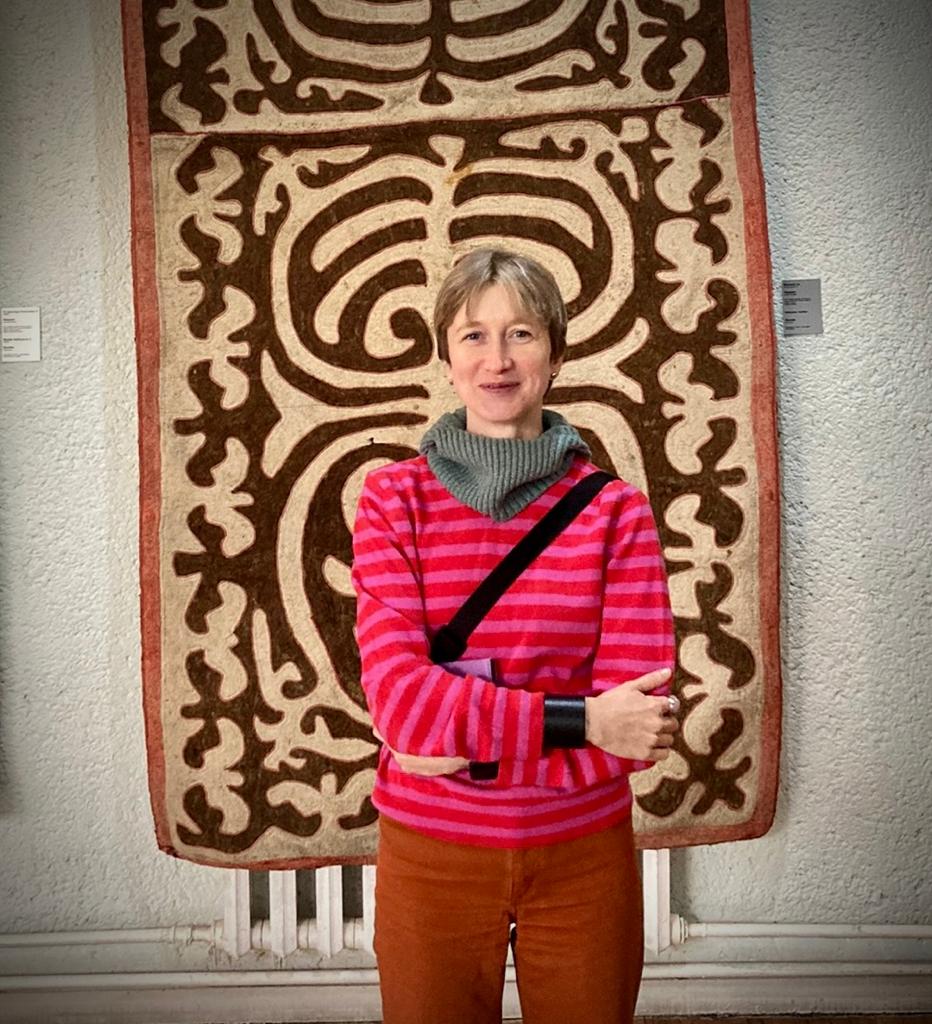
Ekaterina Purgina holds a PhD in Philology, her research interests lie in the field of travel studies, border studies, contemporary literature, modern nomadism, and translation.
The proposed research project focuses on the narratives of crossing borders, which have become crucial for identity formation of the Russian emigrants who left the country after February 24, 2022. These narratives are constructed on social media platforms (e.g. Telegram, Instagram), are defined by the nature of online communication, and, therefore, are inseparable from the reception they get from both other emigrants seeking solidarity and host audiences articulating their attitudes to the newcomers. The narratives will be selected by applying the continuous sampling techniques to the content of Telegram channels publishing the narratives of the 2022 Russian emigrants (e.g. Ochevidtsy, NODA, individual channels created by emigrants).
The research questions that this study seeks to address are as follows: How are spatial and temporal borders experienced and conceptualized in the narratives of the new Russian emigrants? What narratives are used by the emigrants to construct and present their new identity? How do they explain their choices to other emigrants and to their new hosts?
The analysis will focus on three dimensions of borders and border-crossing: spatial, temporal, and social. The spatial aspect deals primarily with the crossing of physical borders. The temporal aspect refers to the before/after borderline dividing the emigrants’ lives, their perceptions of this ‘borderline’ event as well as border temporalities. Finally, the social aspect concerns the divisions that occurred in the narrators’ familial and social environment after 24 February 2022. This aspect also encompasses the relationships that the emigrants seek to establish with their host communities and other emigrants.
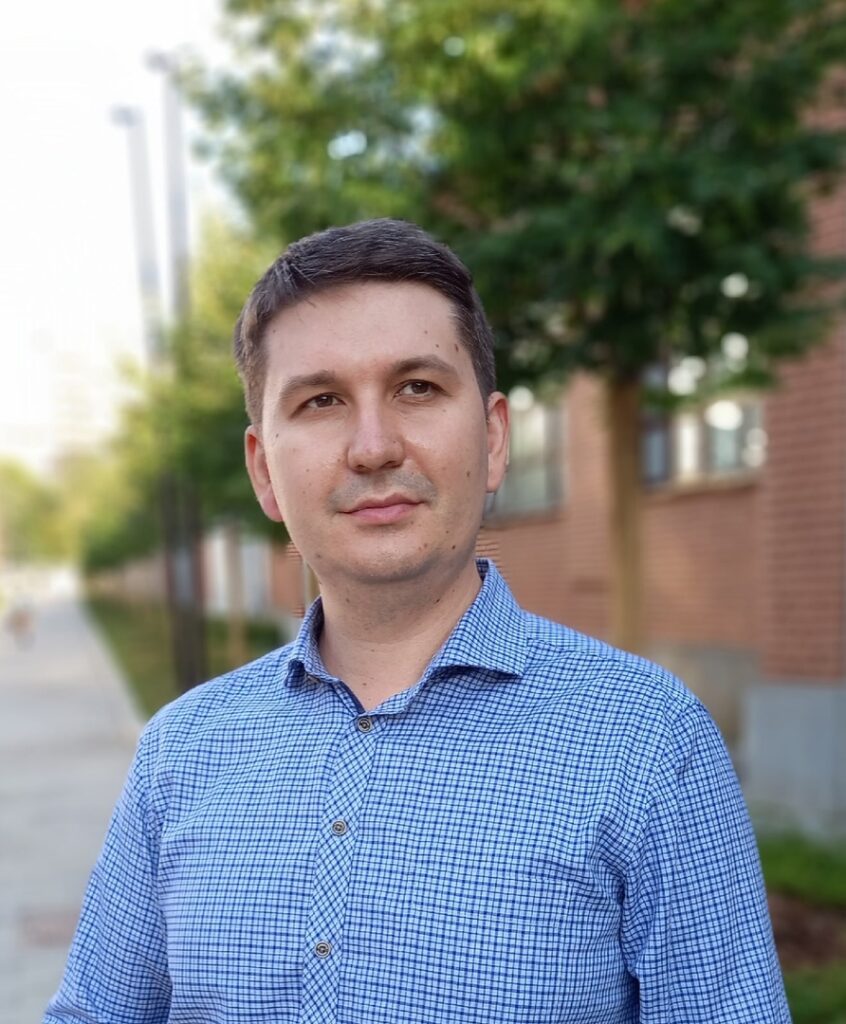
Sergei Shevchenko is involved in bioethics and medical humanities as a researcher, educator, and expert. He obtained his Ph.D. in philosophy on “Personalized Medicine: Philosophical and Methodological Analyses” at the Institute of Philosophy, Russian Academy of Sciences. He also holds a master’s degree in biology.
Sergei organized academic and public discussions on the rights of future generations, epistemic justice, and human enhancement. In 2020, he published a book entitled “Hope: Found and Invented,” which deals with the history of bacteriophage therapy and the role of collective intellectual virtues in its development.
Cognitive studies show that trauma survivors tend to experience specific forms of memory decline. This is an issue not only for medicine and cognitive science but also for bio- or neuroethics and social justice.
Traumatic experiences cause refugees to impoverish their own cognitive niches for the sake of oblivion. Incessant watching TV and reduction of communication networks with all their negative impact on memory can be strategies for adaptation to the new social environment. This form of adaptation is not a manifestation of either biological or social pathology itself but is a consequence of social pathologies that caused traumatic events and the need to flee from them. Accordingly, the desire for oblivion among refugees and residence-changers of different ages should not induce a medical or social stigma. We also can consider re-traumatization caused by the need to recall negative experiences as a specific form of epistemic injustice.
Ethical strategies for dealing with such refugees are required, which include respecting their autonomy and dignity as well as creating a new, more inclusive cognitive environment.
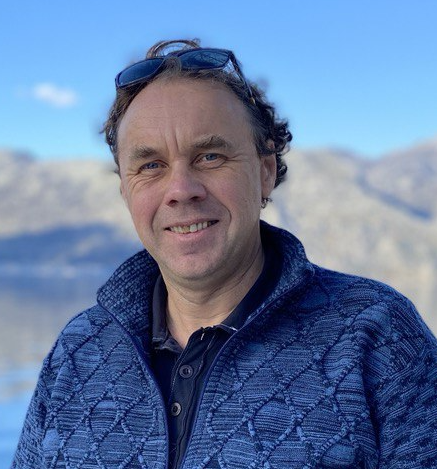
Dmitrii Trubnikov has a joint PhD degree (in Law) from Tilburg University and Bologna University, and a Candidate of Economic Sciences degree (the Russian name for PhD in Economics) from Samara State University of Economics. From 2019 to 2022 he worked as Associate Professor of the Department of Management at Saint Petersburg School of Economics and Management of HSE University (Russia), where he was also Academic Director of the Master in International Business program.
Dmitrii’s PhD research “The Competitive Order for the New Economy: Lessons from the Telecommunications Experience” was focused on the evolution of the European telecommunication sphere and its regulation. Currently, the areas of his research interests are connected to political economy, technological development, and public policy.
The current research aims to analyze the evolution of the Russian segment of the internet (Runet) through the “generations of information controls” framework with a particular focus on the rent-seeking nature of Russian society.
While it is clear that technological changes bring new powerful tools to the hands of authoritarian rulers, an explanation of this phenomenon from purely political perspectives would oversimplify the problem.
On the one hand, authoritarian leaders indeed have enormous benefits from turning their countries into a kind of Orwellian surveillance world. On the other hand, countries like Russia widely exploit market mechanisms, and it is reasonable to assume that precisely the market sphere within the existing institutional arrangements strengthens the power of these regimes.

Nana Gulic is a doctoral student at OISE’s Social Justice Education department with a specialization in Comparative International and Development Education.
She has a Master’s degree in Social Justice and Equity Studies from Brock University and a Bachelor’s degree in Child and Youth Care from Ryerson University.
Nana has done policy work with the Croatian Ministry of Education and served as a nationwide trainer and mentor for teachers and staff specialists during the national education reform (2015-2020).
She has been involved in many projects with international education organizations including the Organisation for Economic Co-operation and Development (OECD), the United Nations Educational, Scientific and Cultural Organization (UNESCO), the International Centre for Innovation in Education (ICIE), and the Teacher Taskforce.
Her research interests are in citizenship education, transnational feminisms, postsocialism, and education policy.
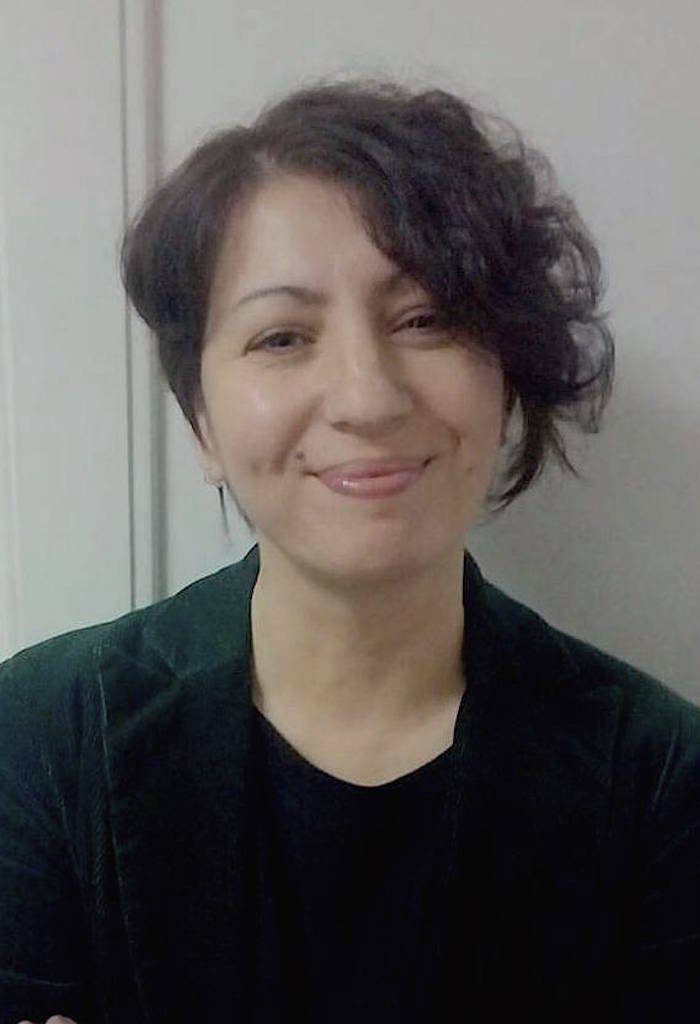
In 2006 she was a Visiting Fellow at the Refugee Studies Centre, at Oxford University. From 2011-2016 she was an executive director of UNHCR’s only research center for refugee and IDP studies in the Western Balkans (CESI). Between 2014-2017 she led the SDC’s RRPP (Fribourg University) 3-year-funded, cross-country project that employed 28 researchers looking into the long-term effects of war-displacement and protracted socio-political transitions in Serbia, Kosovo, and BiH. In 2012 she founded International Summer Schools in Refugee Law and Rights with late, OBE Professor Emerita Barbara Harrell-Bond.
She has taught refugee law, humanitarian studies, psychology, and social anthropology at various universities in Scandinavia, the UK, Western Balkans, and Central Europe.
Selma Porobić holds a Ph.D. degree in migration studies from Lund University in Sweden, combined with postgraduate studies at the American University in Cairo and a professional diploma in International Humanitarian Assistance from Fordham University in New York.
She is currently a program manager of the Aurora European Universities Alliance at the Rector’s office of Palacky University in Olomouc, Czech Republic, and a work package leader for the Capacity Development Program in Central-Eastern Europe, coordinating Ukraine support on behalf of 9 Aurora universities.
She is also an Honorary Research Fellow at University College London and a governing board member of the Research Network ‘Transnational Memory and Identity‘ for the Council for European Studies, Colombia University, New York.
Dr. Porobić has published on a variety of issues focusing on war displacement and post-war recovery with cross-cutting themes of human rights, gender, mental health, and education.
Recently, her research is focused on social trauma in post-conflict societies and peace education. Her latest book, co-edited with Brad Blitz, is entitled Forced Migration, Gender, and Wellbeing. The Long-term Effects of Displacement on Women (Edward Elgar Publishing, UK).
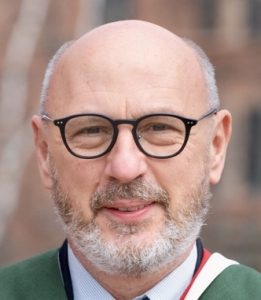
Nebojša Kujundžić’s administrative experience at the University of Prince Edward Island includes serving as the Philosophy Department Chair, as a member of the Board of Governors, and as the Dean of Arts.
Nebojša Kujundžić studied Philosophy and Literature at the University of Sarajevo, ex-Yugoslavia. His philosophical mindset has always been characterized by the desire to bridge the divide between the so-called Continental (European) and the Analytic (Anglo-Saxon) style of philosophy.
He earned his Ph.D. at the University of Waterloo, Ontario and his teaching experience includes Wilfrid Laurier University, Cape Breton University, University of Prince Edward Island, and University of Belgrade. University of Malta appointed him as Affiliate Professor in January 2019. His research interests include Philosophy of Technology, Philosophy of Science, Philosophy of Language and Metaphysics.
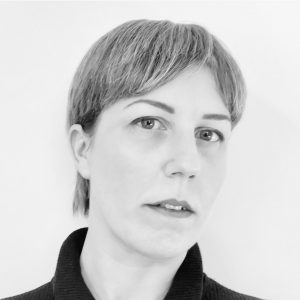
Dominique van de Klundert is a YUFE postdoctoral researcher from Aotearoa, New Zealand. She holds a BA in Art History and Visual Culture, a Graduate Diploma in Education, a BA (Honours) in Museums and Cultural Heritage, and a PhD in Visual Cultures.
Dominique van de Klundert‘s doctoral research developed a media archaeology-informed ‘stereographic’ methodology for de/colonising visual heritage research, combining 3D photographic imaging with the Latin American personal-political oral history narrative form of testimonio to simulate a conversation among residents of contested UNESCO World Heritage Sites in Bolivia and Palestine. Other projects analysed the evidentiary status and heritage qualities of the documentary photographs of early Australian photographer J.W. Lindt and critically investigated the use of criminal death masks in the intersecting practice of phrenology and development of neuroscience at the University of Melbourne’s medical school. Having served as a travel and academic editor, she also supported innovative research dissemination in video format as a participant in the ‘Science & Startups’ programme of the Berlin University Alliance. Her current project investigates the ways in which eco-discourse around designated international ‘dark sky’ communities combating light pollution in Europe and the UK suggests a resurgence of the notion of ‘planetary heritage’.
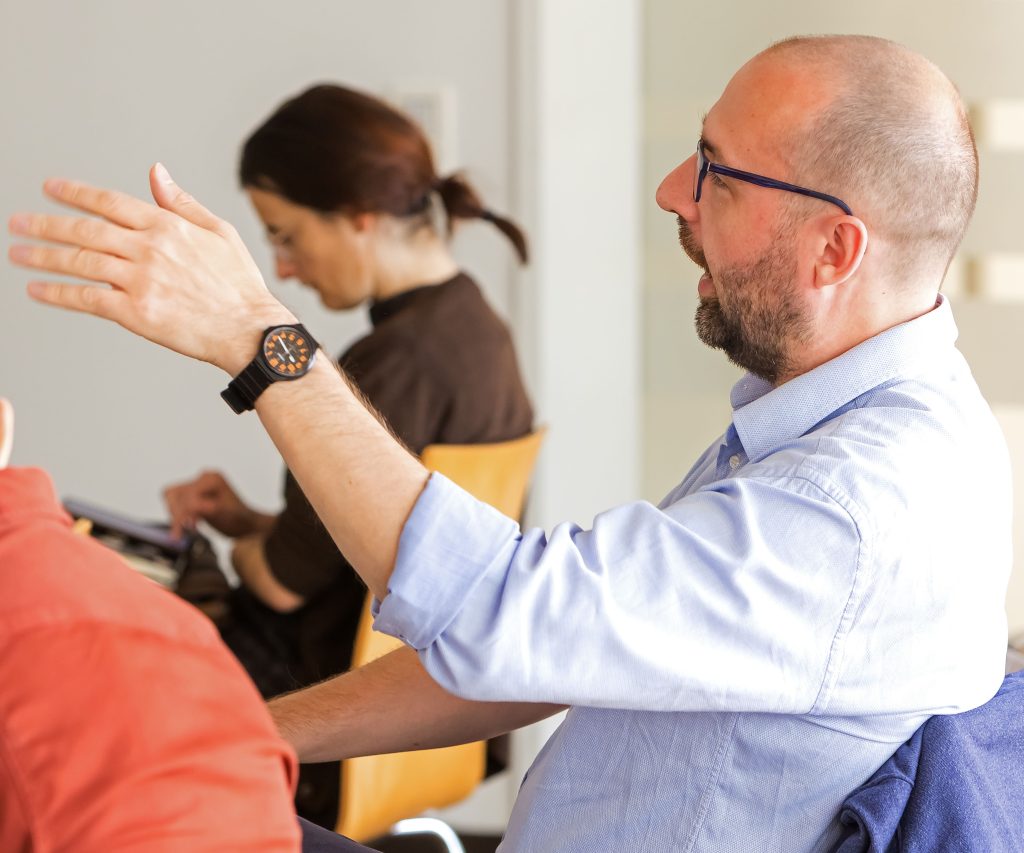
Christian Costamagna earned his PhD degree in Historical Sciences from the University of Eastern Piedmont with a doctoral dissertation about the political reforms in Serbia and Yugoslavia and the ascent to power of Milošević during the second half of the 1980s. He holds a MA in International Relations and Human Rights from the University of Turin.
Christian Costamagna has been a fellow of the Center for Advanced Studies South Eastern Europe (CAS SEE) of the University of Rijeka, a Visegrad Fund fellow at the Vera and Donald Blinken Open Society Archives in Budapest, and an EEGA Leibniz Campus fellow at the University of Leipzig (Department of History). He participated in various international conferences, seminars, and summer schools, and lectured at universities. Among his main research interests, related to the recent past, are the causes of the dissolution of the Socialist Federal Republic of Yugoslavia, the Kosovo War, and the politics in Serbia in the 1990s, he is also an observer of the current political issues in the Western Balkans. Christian is currently conducting research on the Kosovo War and the 1999 NATO military intervention against Yugoslavia.
.

Paul Stubbs is a Senior Research Fellow at the Institute of Economics, Zagreb, Croatia. He has lived in Croatia since 1993 and was an anti-war activist in the 1990s.
His research interests include global social policy, policy translation, new left-green urban political movements, poverty and social exclusion, history of Yugoslav socialism, and the Non-Aligned Movement. His books include Social Inequalities and Discontent in Yugoslav Socialism (edited with Rory Archer and Igor Duda, Routledge, 2016), Making Policy Move (with John Clarke, Dave Bainton and Noemi Lendvai, Policy Press, 2015), and Socialist Yugoslavia and the Non-Aligned Movement (edited, McGill-Queen’s University Press, 2023). He is currently working on a history of the New International Economic Order to be published by Routledge.
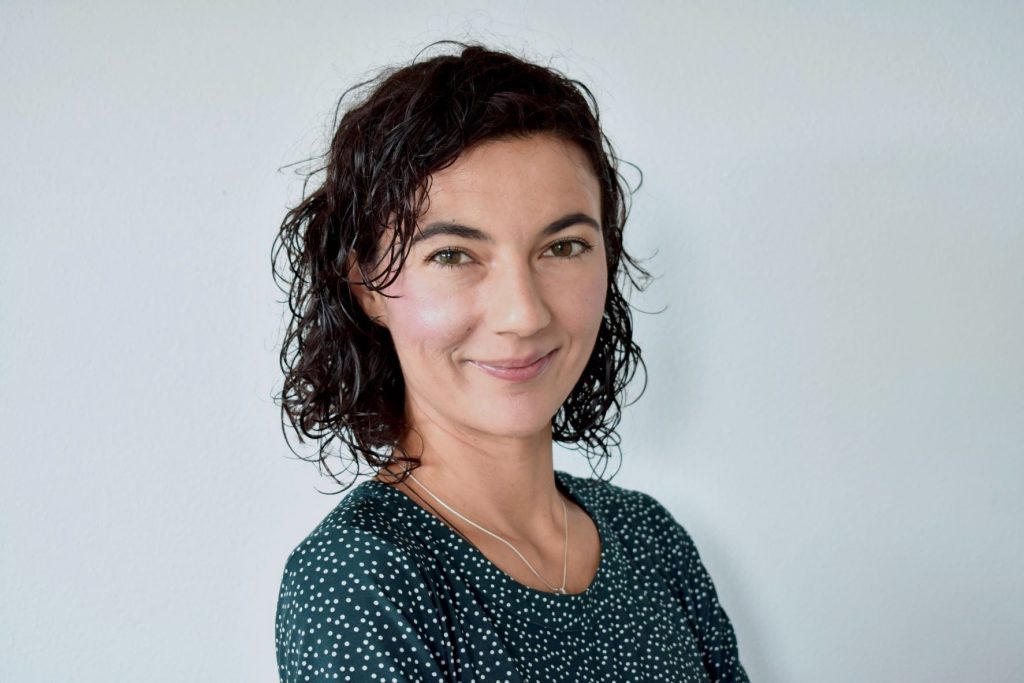
Dragana Mrvoš is a University of Tampa Lecturer and SIGS Alumni. She has received a Fulbright U.S. Scholar Program award in political science and government to Croatia for the 2024-2025 academic year from the U.S. Department of State and the Fulbright Foreign Scholarship Board.
In collaboration with the Center for Advanced Studies Southeast Europe (CAS SEE) at the University of Rijeka, her research project, “Return Migration and Democracy in Croatia: The Potential of Social Remittances” will explore how return migrants, individuals voluntarily returning to the country of origin after living, studying, and working abroad participate in numerous ways in economic life, educational system, and cultural events of Croatia. The project will provide preliminary findings on ideas and strategies of return migrants who participate in social reforms in Croatia as well as preferences and challenges of returnees who participated in knowledge gaining and sharing and worked closely with other countries. Findings will be relevant to other Eastern and Southeastern European countries that experience unusually large and persistent emigration, dominated by educated and young people. This award will also be a unique opportunity to initiate and establish future partnership and connections between the preeminent academic institutions in Croatia and the United States.
